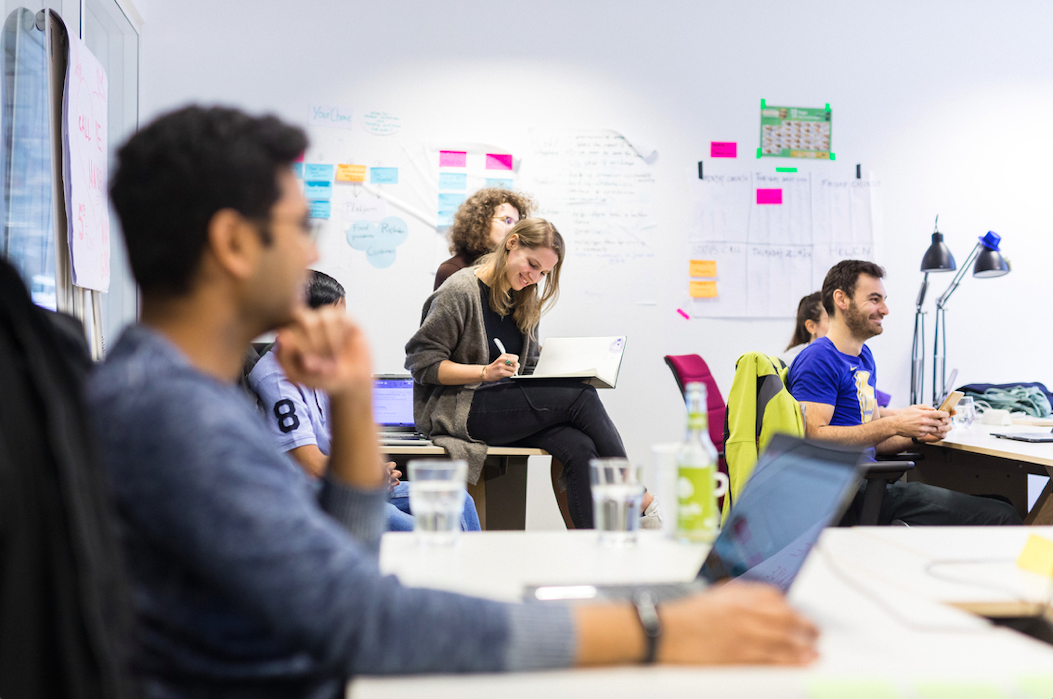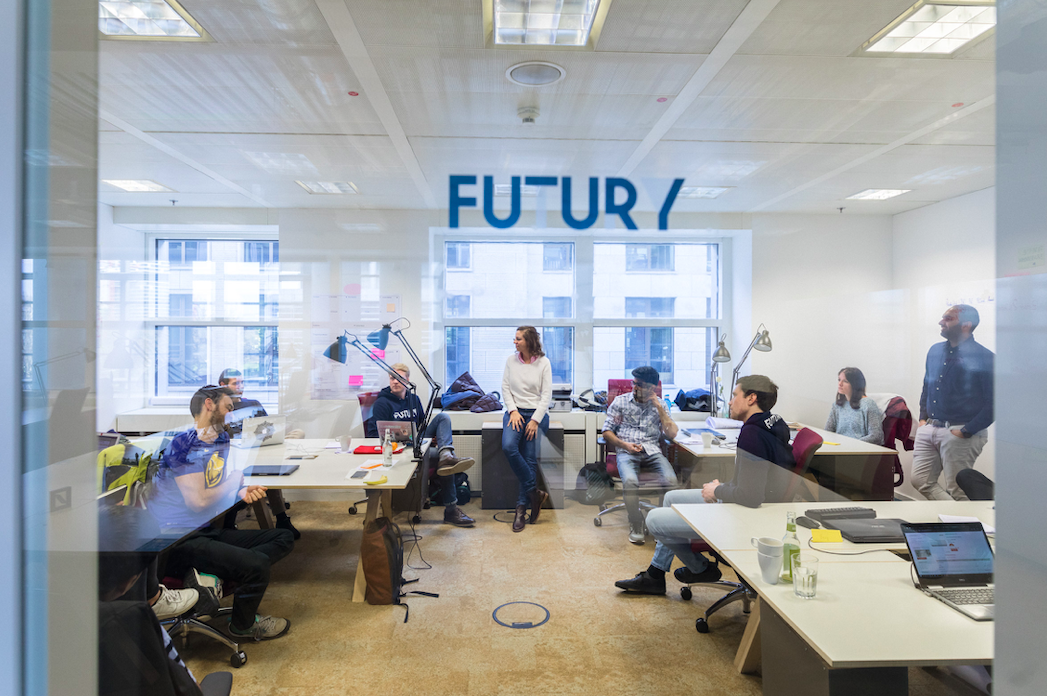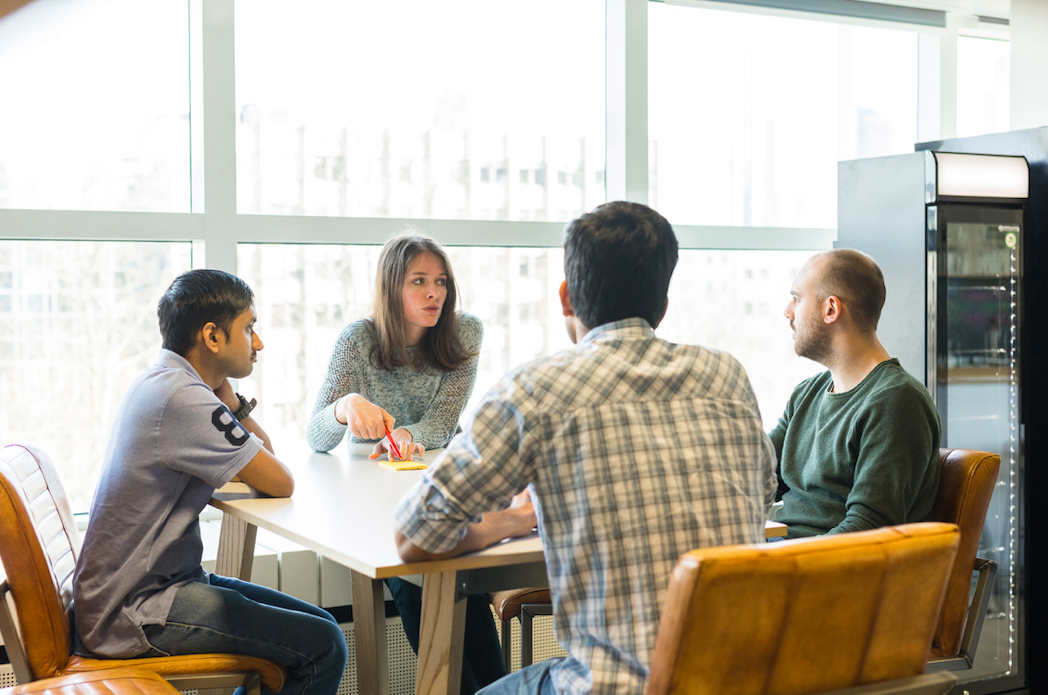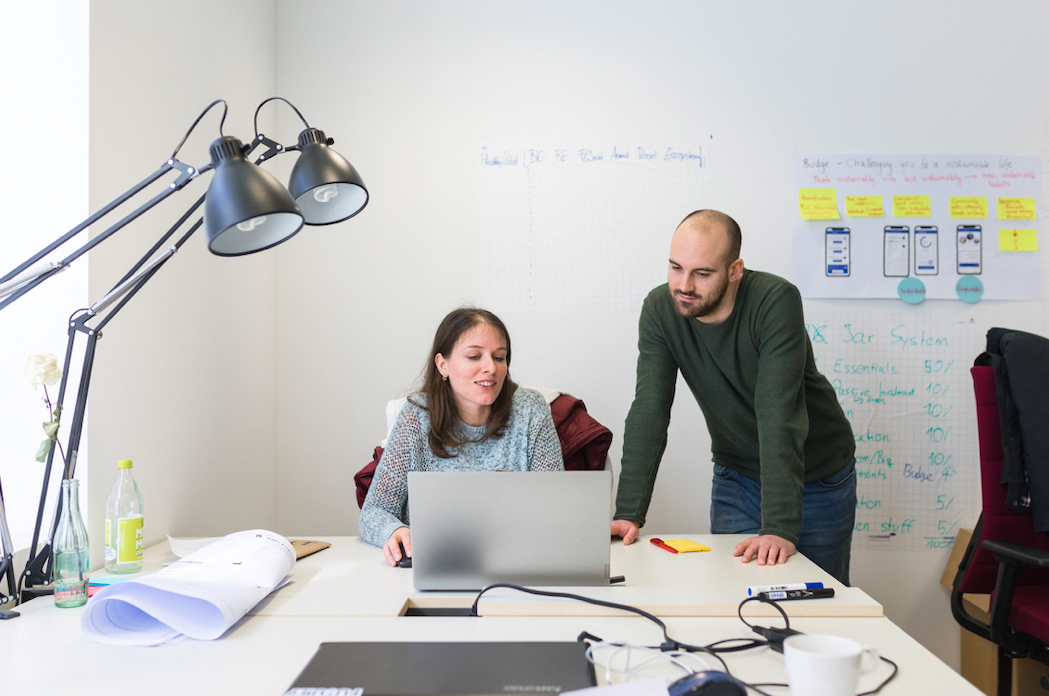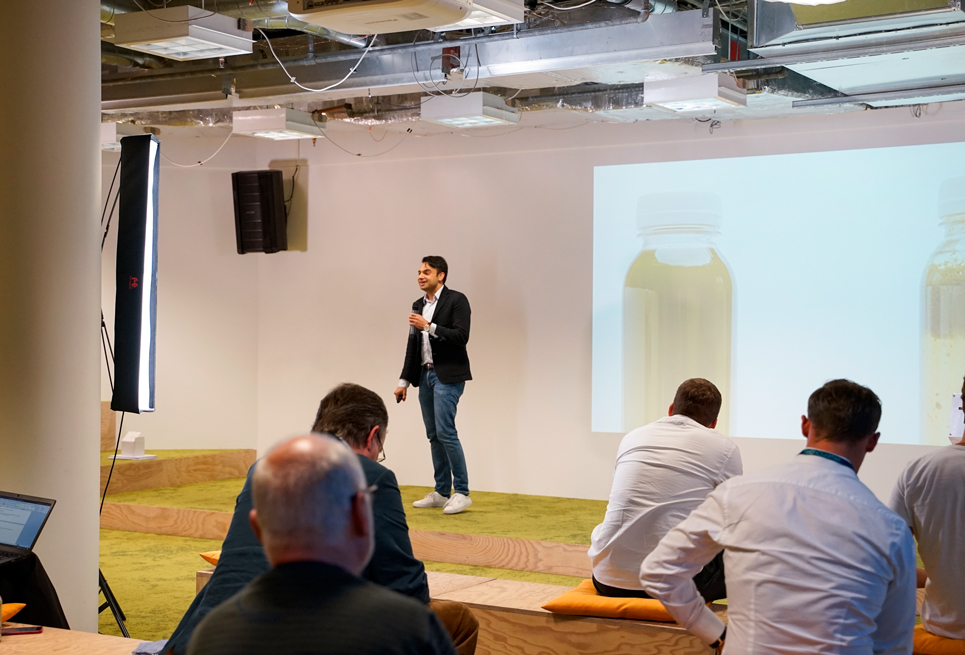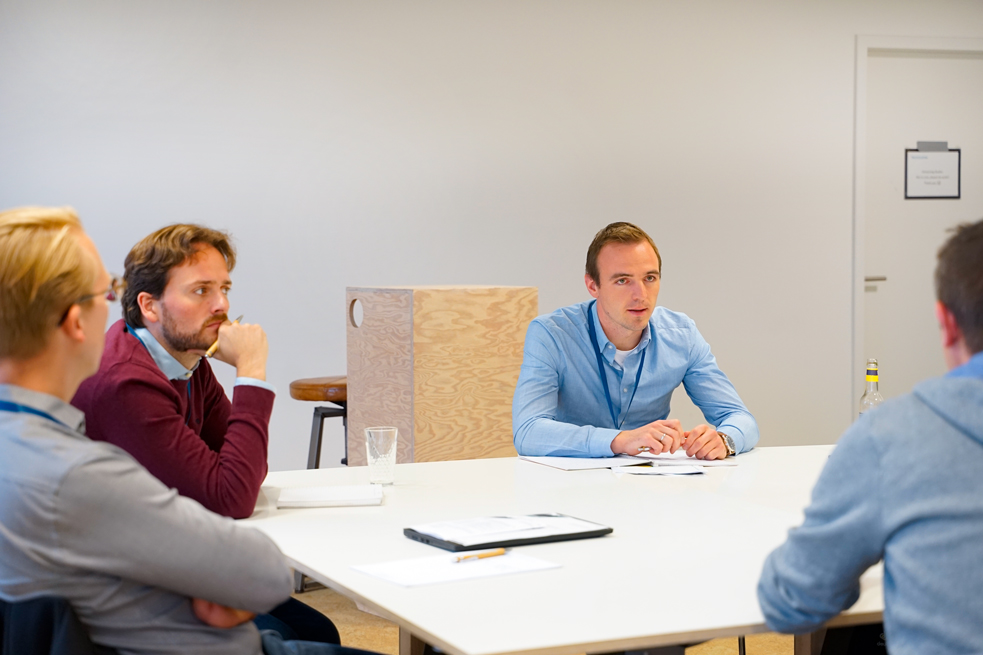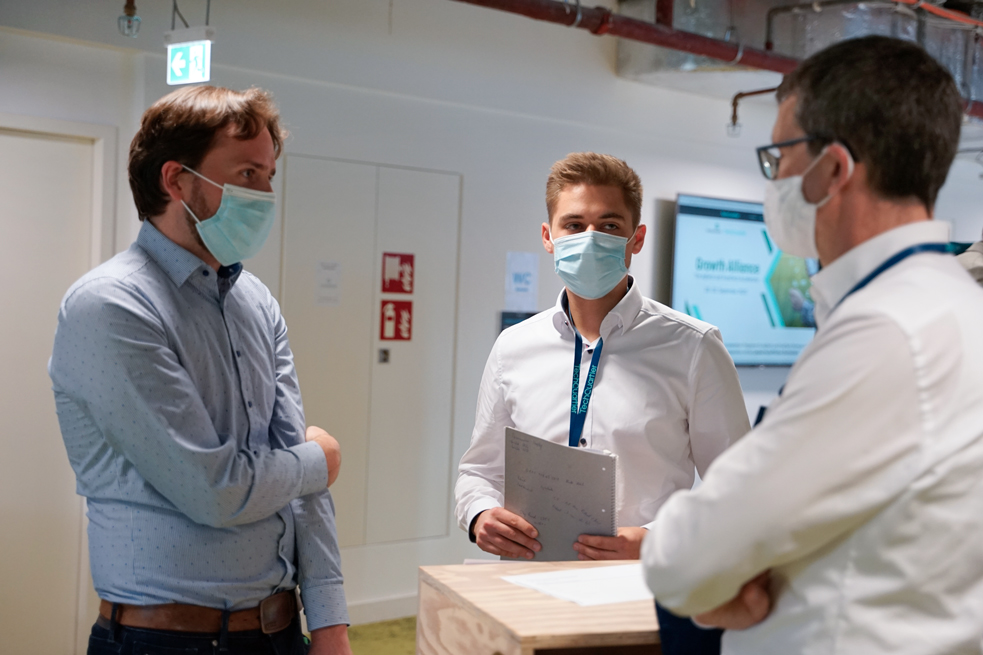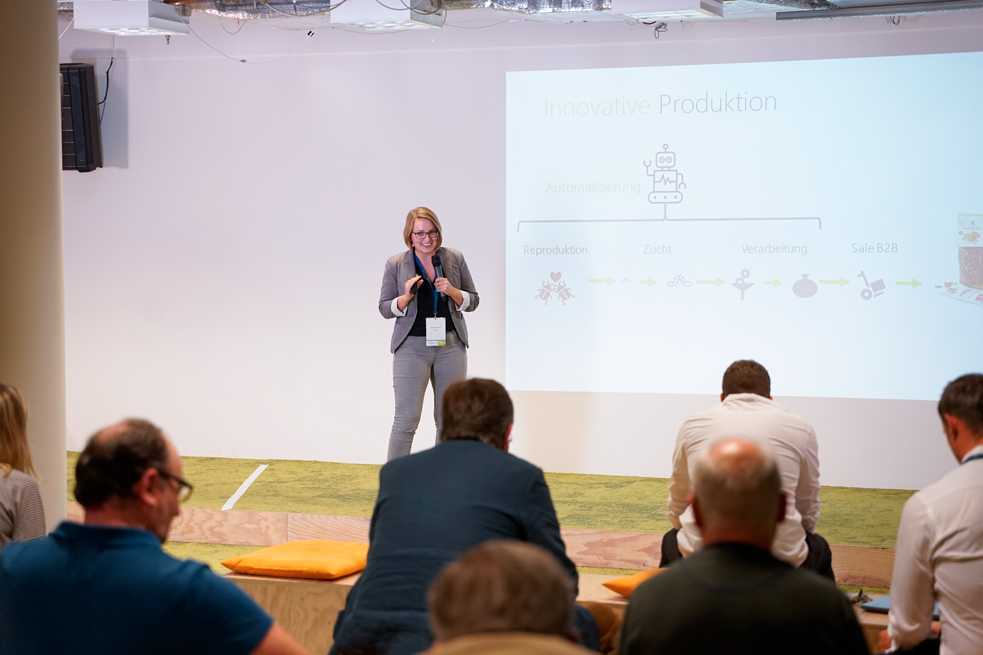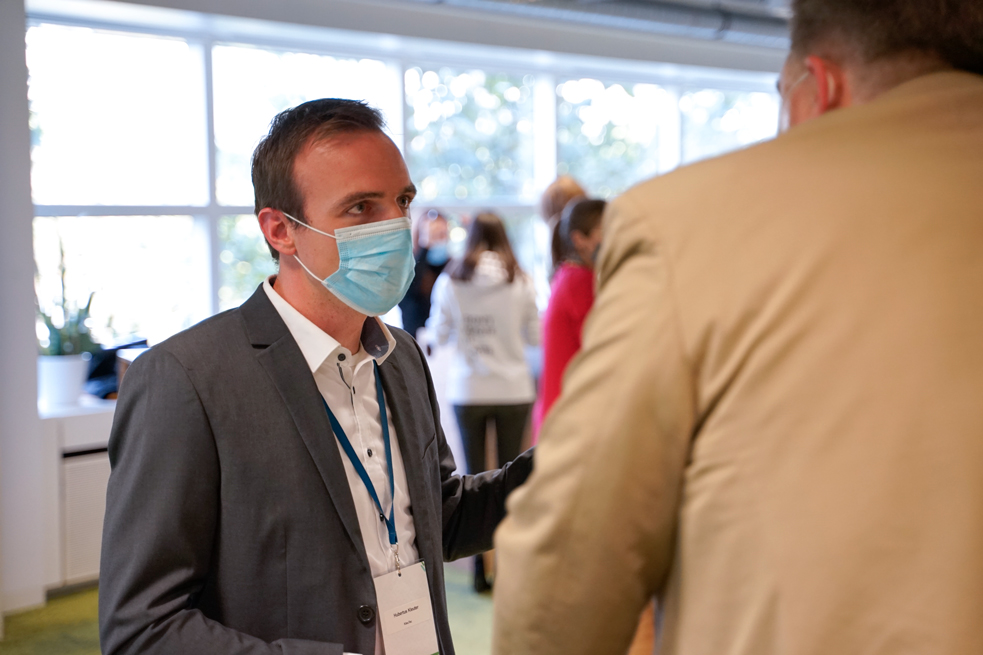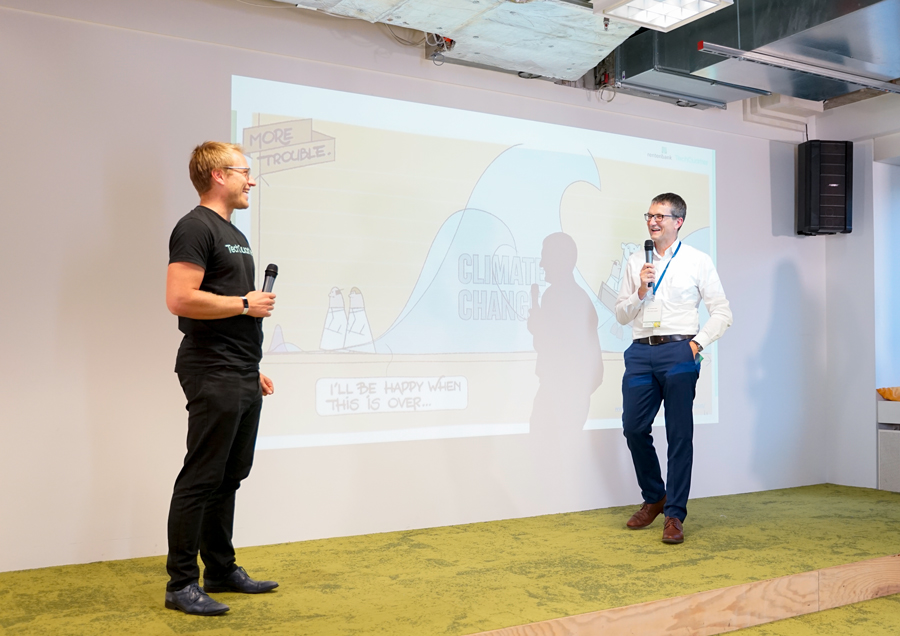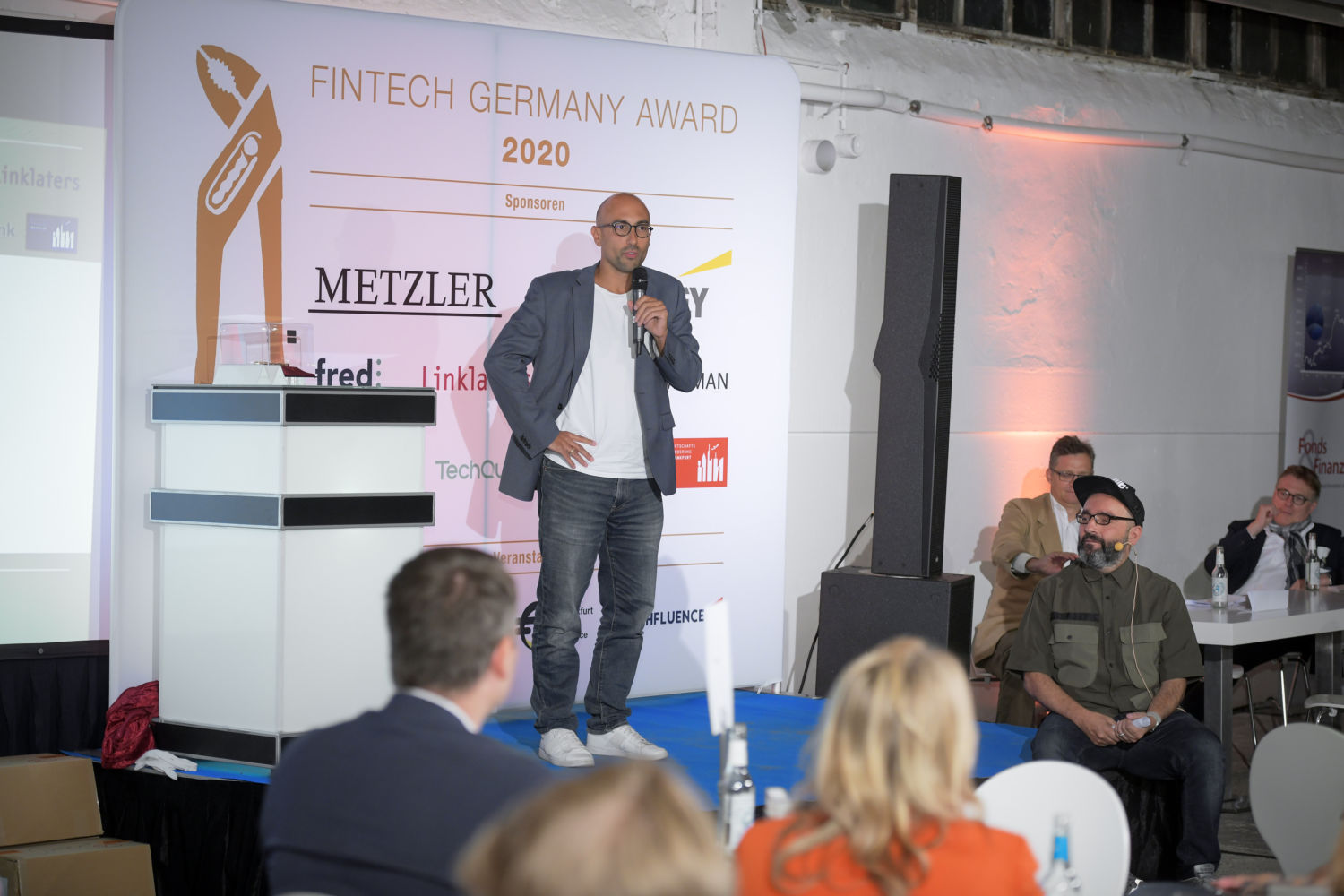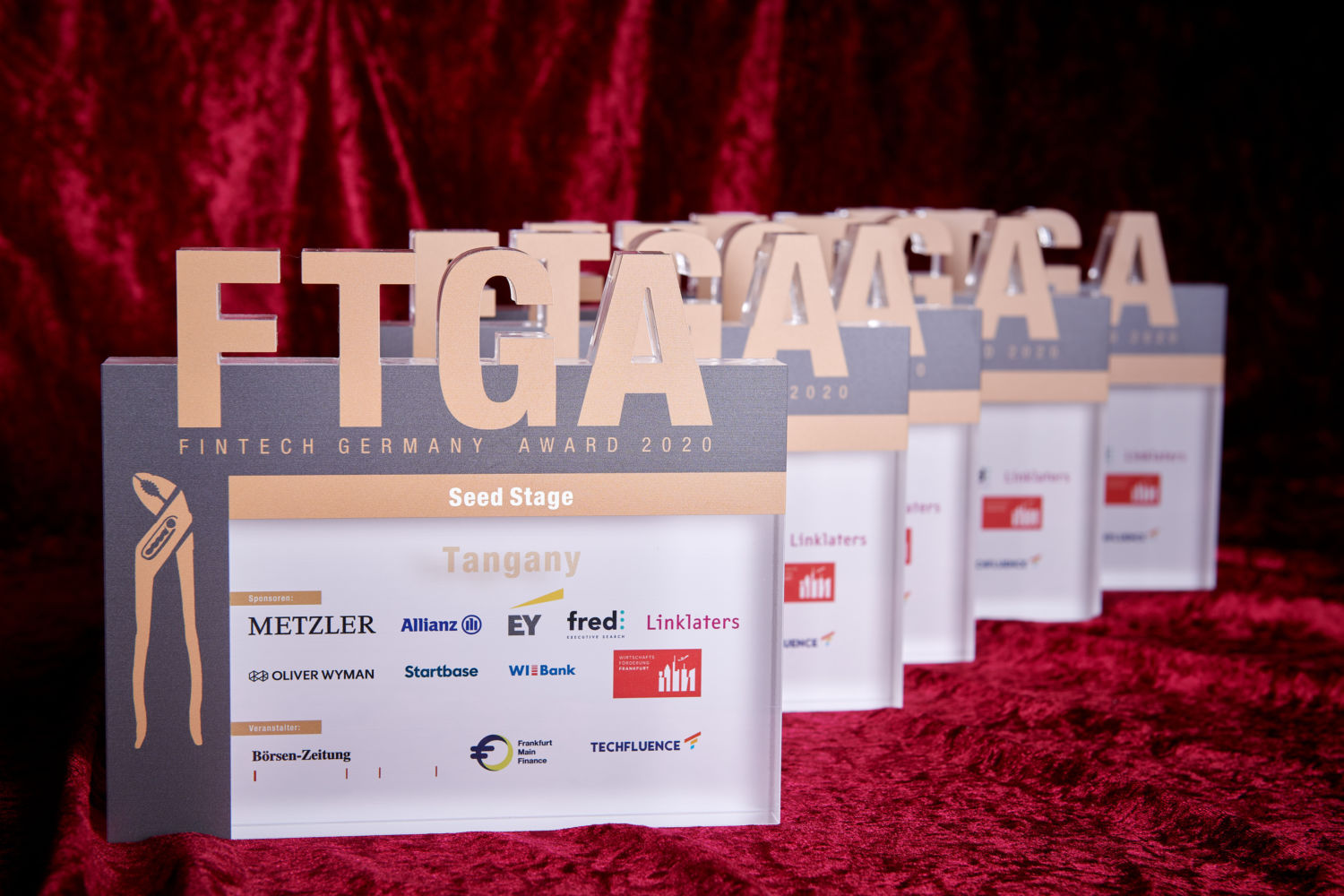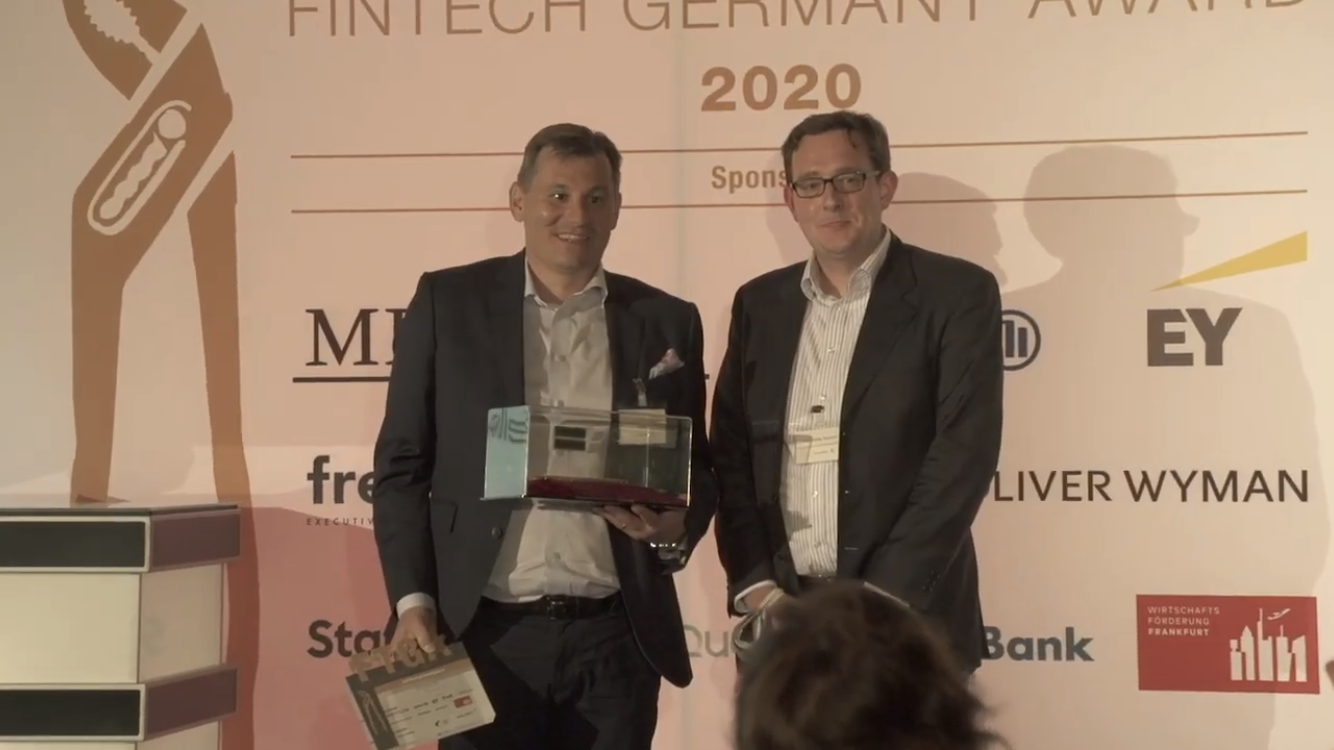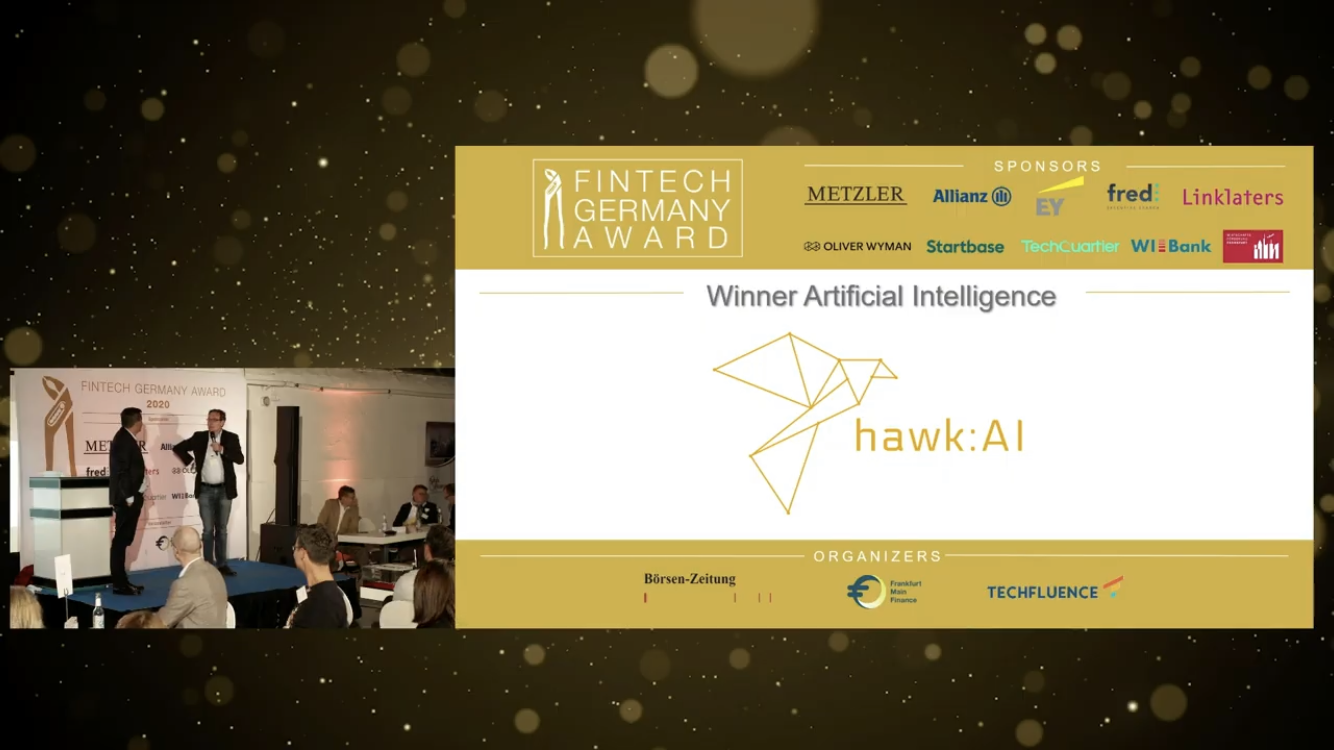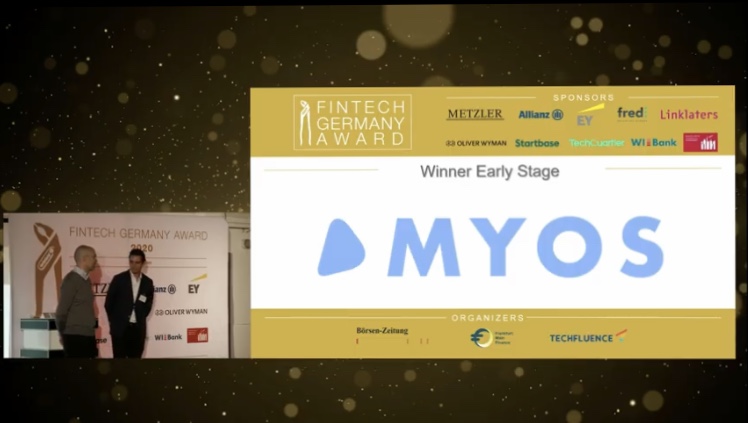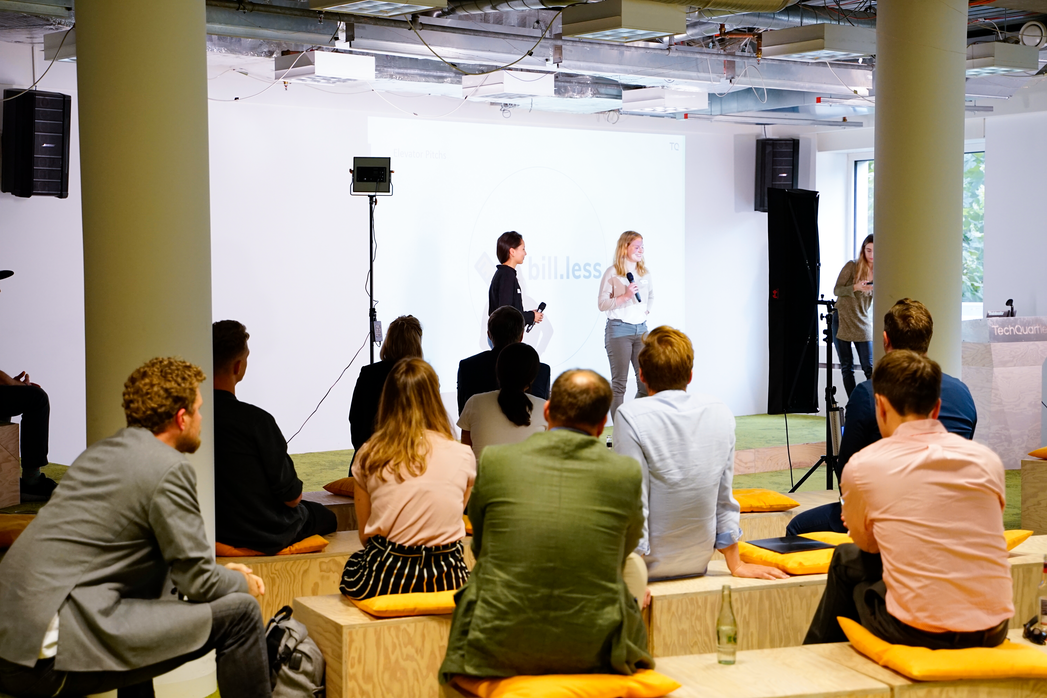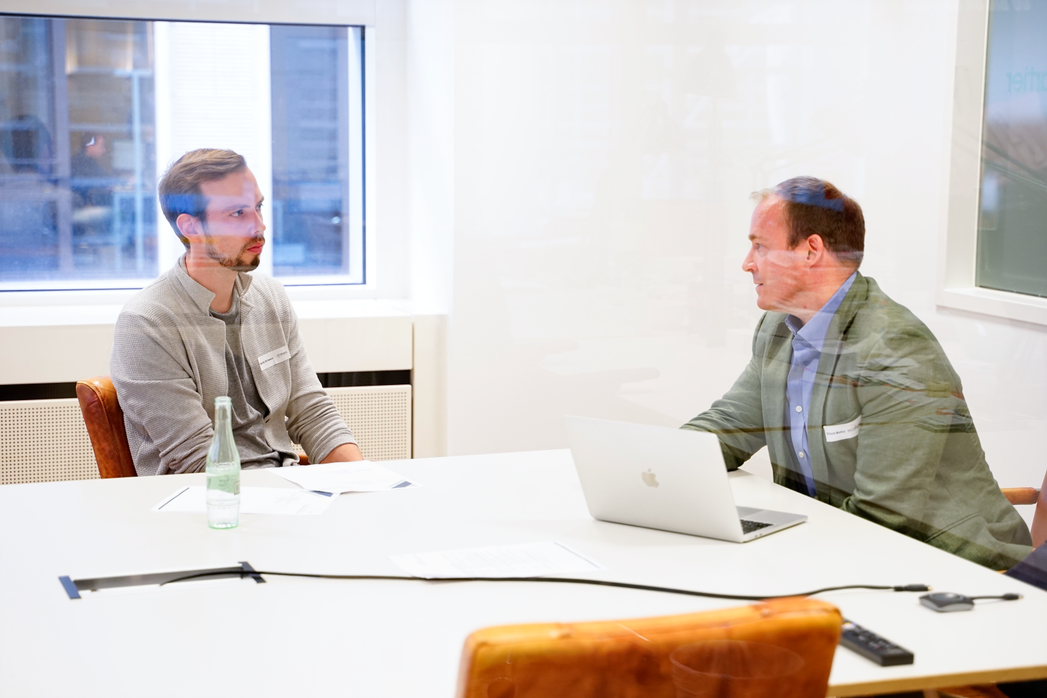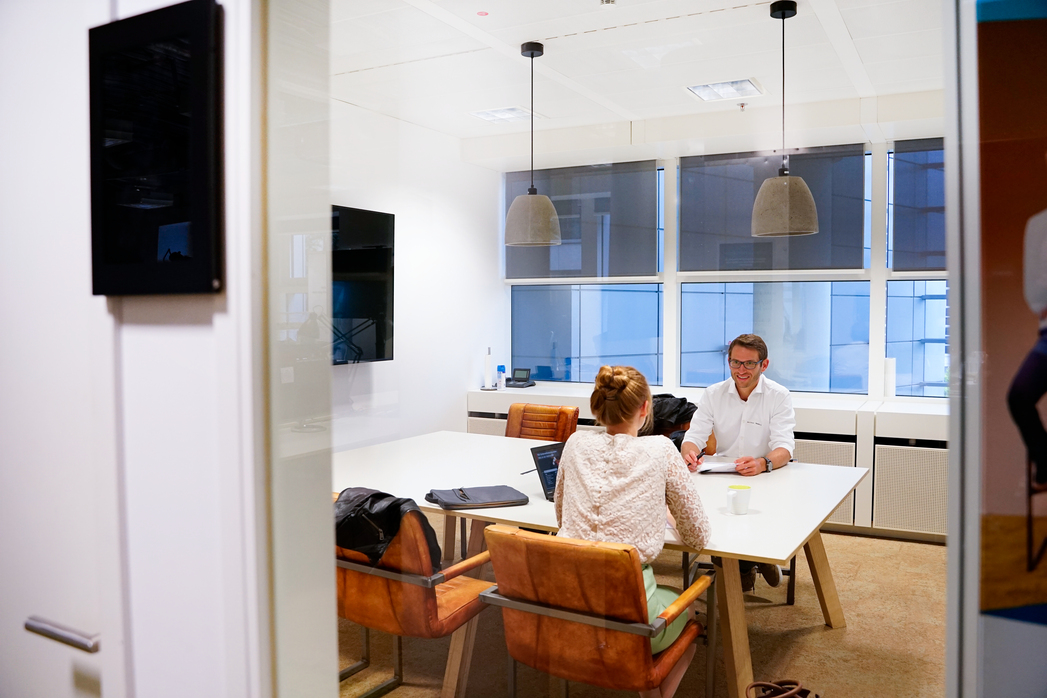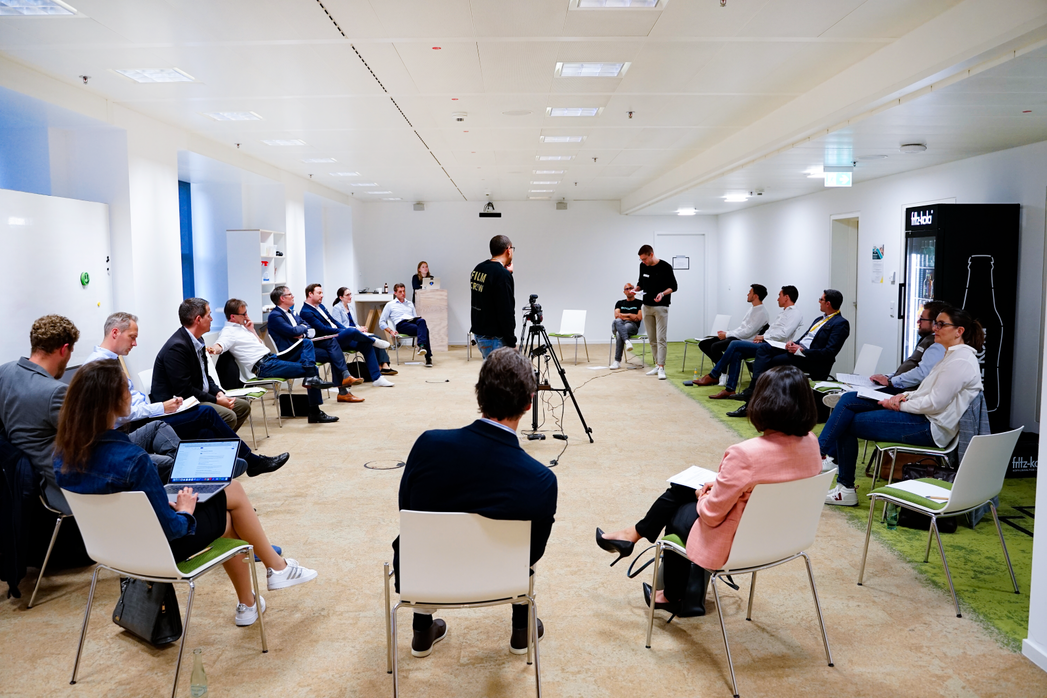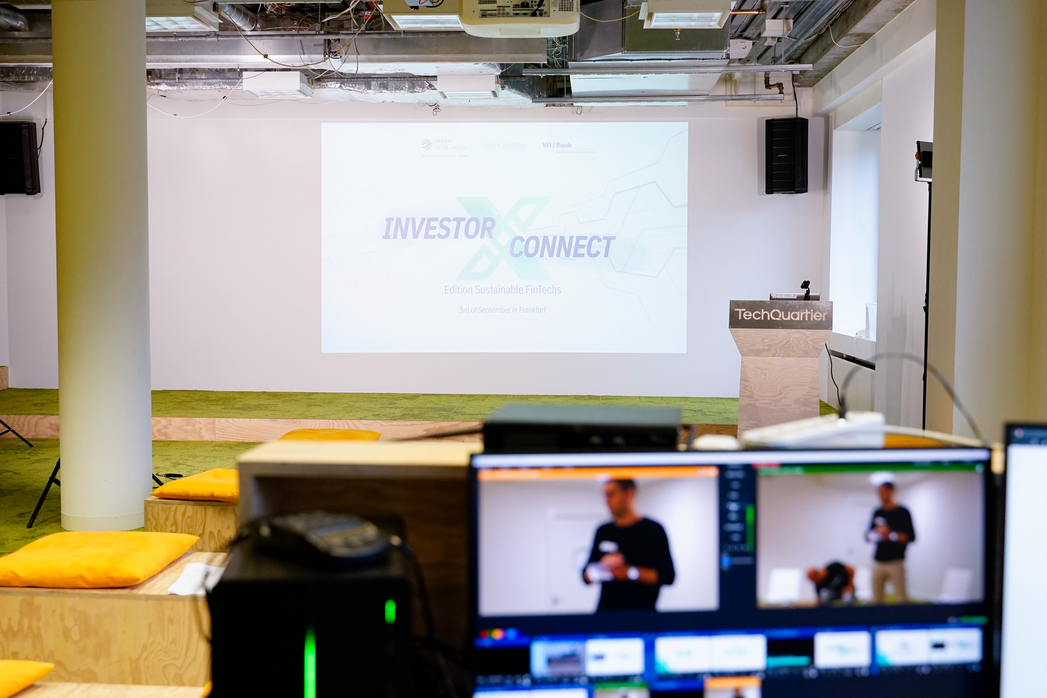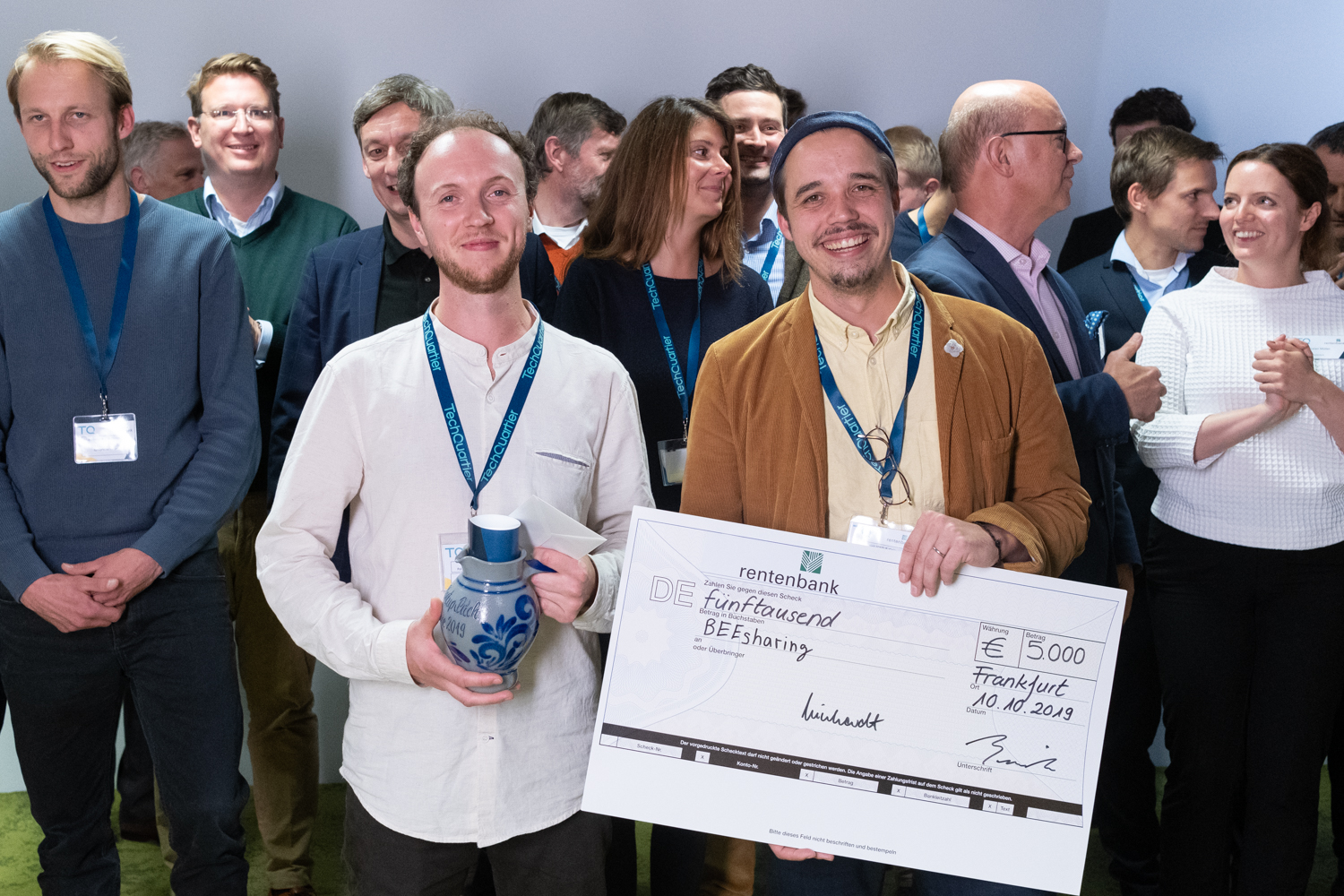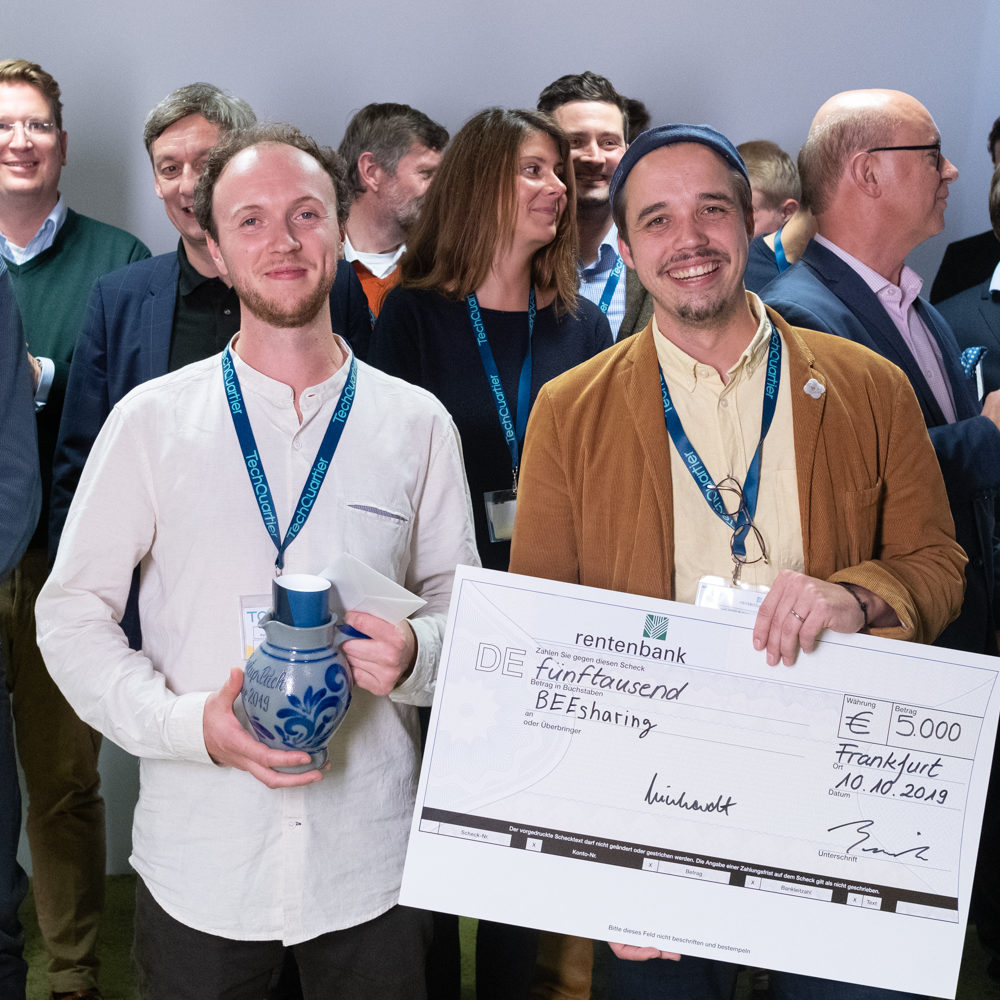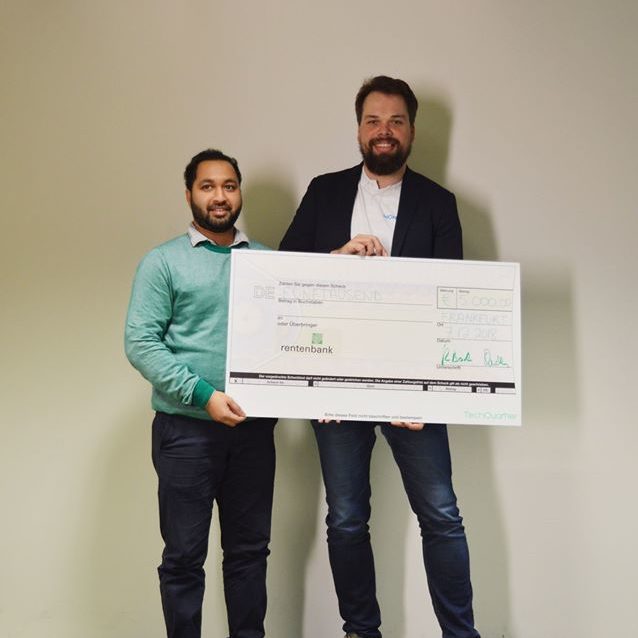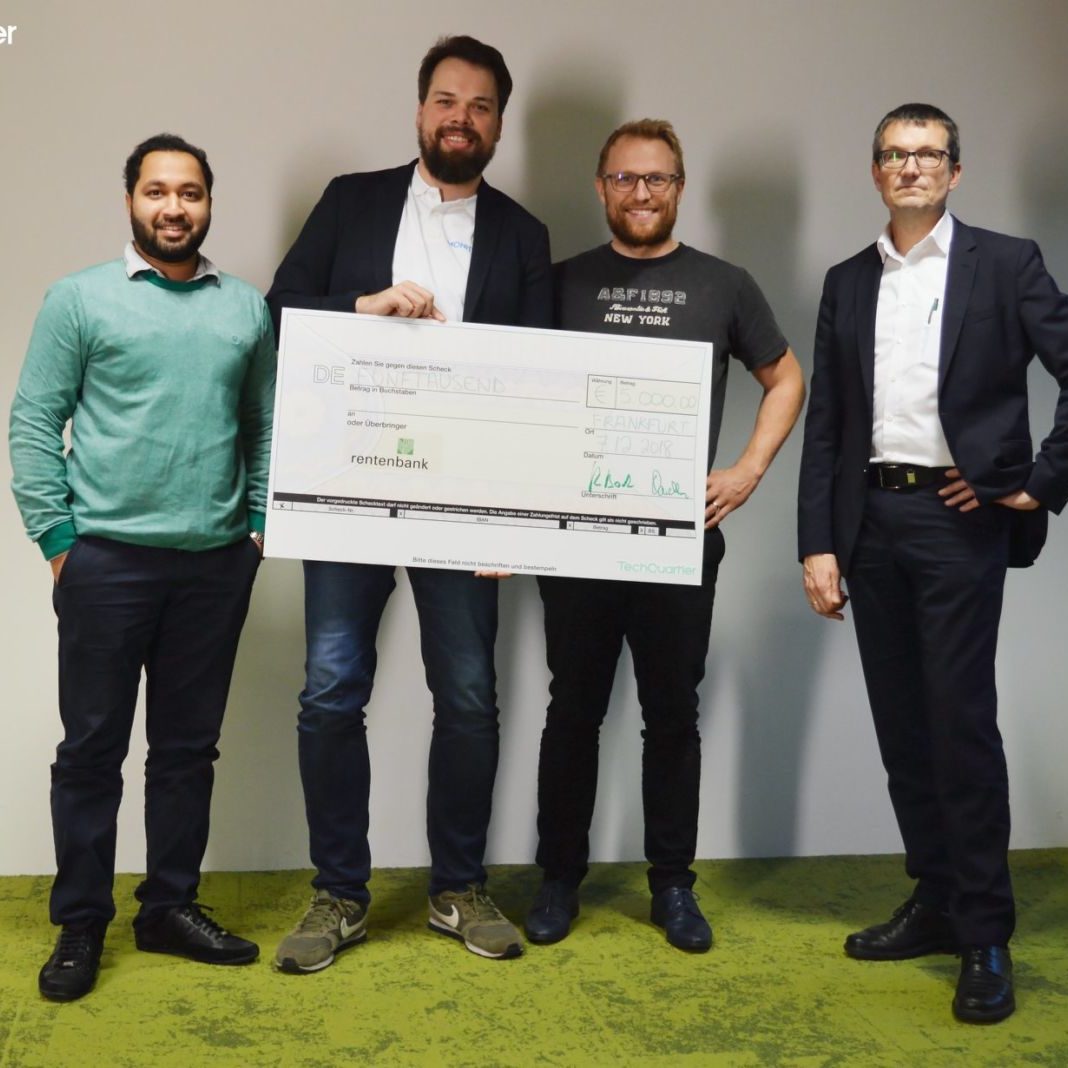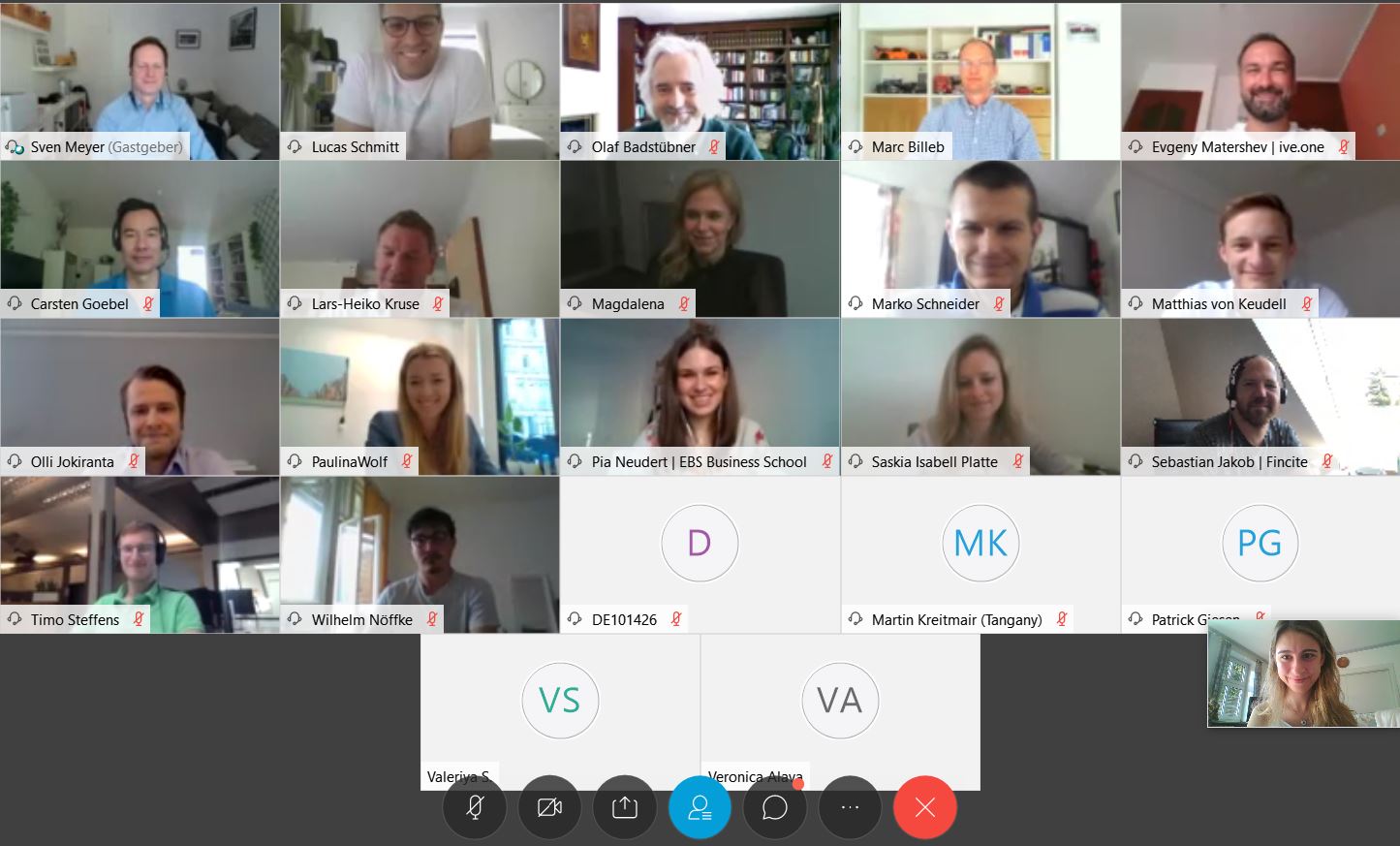“The Mission” returns to TechQuartier for the third time!
“The Mission” returns to TechQuartier for the third time!
Innovation needs a room to grow. That’s why Futury, an innovation and venturing platform from Frankfurt, chooses TQ as the home base for their project teams for the third project in the row.
Futury was founded in 2017 as a spin-off of the Werte-Stiftung, an independent foundation based in Frankfurt that strives for equal opportunities and social cohesion in Germany.
With the goal of creating value-based innovation, Futury began to expand its network and offer one-of-a-kind innovation projects to Germany’s market leaders and hidden champions, where teams of young talents seized the companies’ innovation potential and developed new business models, products and services.
The Mission
Last year, together with the partners Bain & Company, Deutsche Bank, Handelsblatt and PreZero, Futury has launched The Mission – a new initiative for a sustainable future.
Twelve different topic areas were jointly defined by the partners, each to be covered by a three-month innovation project, i.e. ‘a Mission’. For each round, Futury invites various industry players and 20 top young talents on board to develop holistic sustainable innovations.
The Mission at TechQuartier
From the second Mission on, Futury has been choosing TQ as space for its project teams to create, innovate and set the first building blocks of their startups.
Vanessa Kämpf, Program Director of The Mission: “TechQuartier has proven to be the perfect space for us and our teams. We start each project with an extensive onboarding week full of workshops and expert talks, and then go into daily business with meetings, calls and the regular routine. TechQuartier, as an office, provides us with everything we need for a smooth working experience. But what is even more important is the sense of community we have here. Our teams are in constant exchange will all the other startups we share the floor with to get feedback and inspiration, which I personally value a lot. “
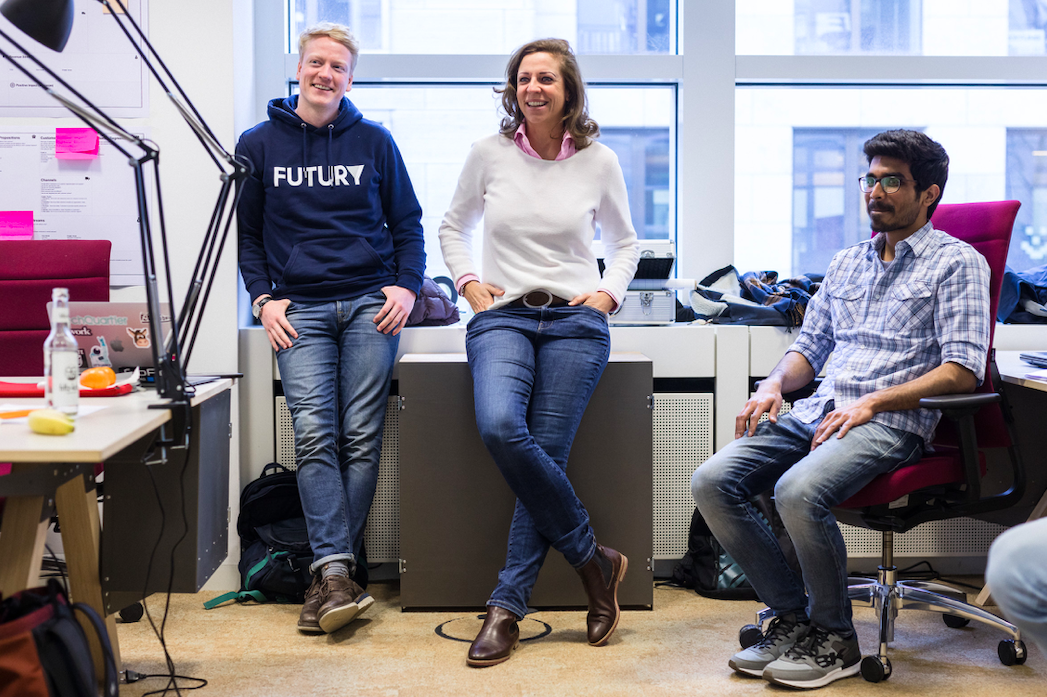
“It’s not just about the working space, the leisure space is fantastic as well!” – adds Lara Dodd, Project Manager of Futury’s “Sports – Be Sustainable” project that they successfully closed off last week. “Our teams found TQ to be a perfect space for after-work events, which I think contributed to their amazing team spirit and the overall atmosphere of the project. My absolute highlight of the past project was our intercultural evening, where our teams cooked and brought the food from their cultures and we had an amazing time together. Events like these made our TQ experience even more special.”
Read more about Futury’s experience in TQ in their blog post about us!
End of October, Futury will return to TQ for the third time with “The Mission IV: Work – Be Next!”. With the main partner Schaeffler and 20 young talents, they will look into the sustainable future of how, where and with whom people work and develop five unique ideas around that topic.
Follow Futury on LinkedIn to keep up with their developments!
We look forward to welcoming Futury in our co-working space again.
Recap: AgTech/FoodTech Accelerator 2020 zusammen mit der Rentenbank
Recap: AgTech/FoodTech Accelerator 2020 zusammen mit der Rentenbank
Die dritte Edition übertrifft erneut die Erwartungen der Teilnehmer.
Der diesjährige AgTech/FoodTech Accelerator hatte einiges zu bieten: 12 Startups aus der Lebensmittel- und Agrarbranche waren zu Gast im TechQuartier, um interessanten Speakern zuzuhören, an ihren Pitches zu arbeiten und ihr Unternehmen den Investoren und Zuschauern des DemoDays vorzustellen. Akteure aus Politik und Industrie konnten ihr Wissen an insgesamt drei Tagen an die Jungunternehmer vermitteln.
„Trotz der schwierigen Rahmenbedingungen durch Corona war die „Growth Alliance“ auch in diesem Jahr ein voller Erfolg: Interessante Start-ups aus unterschiedlichsten Bereichen, umfangreicher Input von Experten und ein spannendes Finale beim hybriden Demo-Day. Vielen Dank an das TechQuartier für die gute Zusammenarbeit und an alle Gründerinnen und Gründer für ihre Teilnahme“. – Dr. Bock, Bereichsleiter Fördergeschäft Rentenbank
Das Auswahlverfahren
Alles begann mit der Bewerbungsphase im Sommer. Insgesamt 39 Startups haben sich über das Programm informiert und bewarben sich mit ihren Ideen. Interessante und Innovative Startups in vielen unterschiedlichen Bereichen, wie Künstlicher Intelligenz, Nahrungsmittel und dem Pflanzenanbau wollten sich einen Platz beim dritten AgTech/FoodTech Accelerator sichern. Nach einem intensiven Auswahlverfahren, inklusive Interviews mit den Projektmanagern der Rentenbank und dem TechQuartier, standen die 12 Finalisten fest:
- Agranimo – Das Startup bietet ein System zur Überwachung des Umgebungsklimas mit patentierten drahtlosen Sensoren zur Messung der Feuchtigkeit und anderer Umweltfaktoren, die in einer Wolkenplattform mit zusätzlichen Datenquellen verarbeitet werden an (Berlin).
- Agrimand – Mit Agrimand wird es Landwirten, Agrarhändlern und Produzenten ermöglicht, Waren in Echtzeit über digitale Ausschreibungen mit Hilfe von Smartphones oder Webanwendungen zu handeln. (Birkenwerder bei Berlin).
- Cellulosic Technologies – Cellulosic Technologies ist ein wissenschaftsbasiertes Unternehmen, das sich auf genießbares biologisches Material spezialisiert hat, welches durch bakterielle Fermentierung von organischen Quellen wie Melasse, Fruchtsäften und anderen hohen Zuckerquellen usw. hergestellt wird (Stuttgart).
- Circular Carbon – Das Startup entwickelt pflanzliche Kohle aus Recyclingmaterialien und verbessert somit die Humusbildung und wirkt als Langzeitdünger sowie als Wasserspeicher in der ölintensiven Landwirtschaft (Würzburg).
- CORAmaps – CORAmaps schafft ein großräumiges (globales) landwirtschaftliches Flächenmonitoring mit Blick auf die Klassifizierung der Kulturen, die Pflanzenvitalität und die Erträge (Maintal).
- Corvitac – Das Startup hat ein Kamerasystem mit Hilfe von AI-Technologie entwickelt, welches das Problem der manuellen Zählung von Schweinen und die daraus resultierenden Fehler löst (Hannover).
- INOVA Protein – INOVAProtein konzentriert sich auf die vollautomatisierte Insektenzucht, die ein nachhaltig und proteinreiches Insektenmehl produziert (Rostock).
- KleuTec – KleuTec entwickelt eine Maschine, welche die Einrichtzeiten von Gülleschläuchen verkürzt, indem sie alle notwendigen Komponenten in einer einzigen Maschine kombiniert (Samtgemeinde Fintel).
- Kronos – Kronos ermöglicht es mit ihrem intelligenten sensorgesteuerten Werkzeugsystem eine glyphosatfreie, ressourcenschonende und damit nachhaltige Bodenbearbeitung (Dresden).
- Phytoprove Pflanzenanalytik – Phytoprove entwickelte eine innovative Messmethode bei dem der Stickstoffdüngungszustand schnell und ohne Schädigung der Pflanzen bestimmt und so die Düngung bedarfsgerecht optimiert, Ressourcen und Kosten gespart sowie die Umwelt entlasten werden kann (Frankfurt).
- Spoontainable – Spoontainable bietet plastikfreie Alternativen im Gastronomiegewerbe an durch die Verwendung von industriellen Lebensmittelabfällen (Heidelberg).
- TriLitec – TriLitec entwickelte eine KI-basierte Software-Plattform, die mit Hilfe von Radarsensoren Fremdkörper in der Nähe der Erntemaschine erkennt und lokalisiert, sodass der Maschinenführer rechtzeitig reagieren und Unfälle verhindern kann (Osterholz-Scharmbeck).
Hannes Pribbernow von Corvitac kommentierte: “Wir haben uns für den AgTech Accelerator beworben, da er perfekt auf unsere Bedürfnisse und unser Business zugeschnitten ist. Viele Acceleratoren und Workshops sind „nur“ allgemein auf Startups ausgerichtet und da passen die Inhalte oft nicht so perfekt zu den relativ speziellen Startups in der Landwirtschaft. Da wir unser Netzwerk vergrößern und uns auf Verhandlungen mit Investoren vorbereiten wollten, war das die perfekte Möglichkeit.“
Tag 1 – Ankommen und Kennenlernen
Zum Auftakt des dreitägigen Workshops wurden die Programmteilnehmer vom Managing Director des TechQuartiers Dr. Sebastian Schäfer und Vorstandsprecher der Rentenbank Dr. Horst Reinhardt begrüßt, bekamen eine Einführung in beide Unternehmen und in das AgTech Ökosystem. Zudem wurde Hans-Joachim Fuchtel eingeladen, als Parlamentarischer Staatssekretär für Ernährung und Landwirtschaft stand er den Startups zum Leitthema Rede und Antwort.
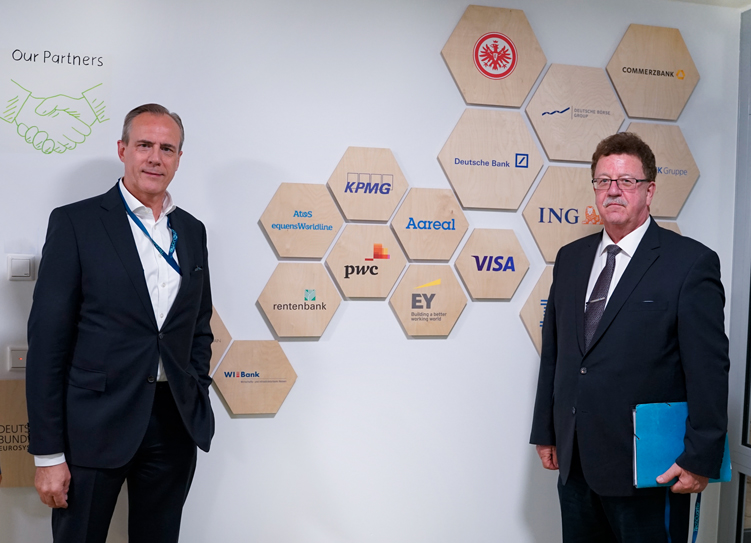
Tag 2 – Lernen, umsetzen und proben
Der zweite Tag hatte es in sich! Von einer Pitchanalyse bis hin zu einer GDPR/Arbeitsrecht Gesprächsrunde und einem Vortrag zu Verhandlungsstrategien von Joachim Lauterbach, war alles dabei. Die Startups feilten fleißig an ihren Pitches und bereiteten sich lange auf den DemoDay am darauffolgenden Tag vor.
„Mein biggest learning kam definitiv aus dem Workshop von Jan-Lütje Thoden zum ThemaMitarbeiterstruktur und dem Recruiting von neuen Mitarbeitern.“, sprach Raijana Schiemann von INOVA Protein.
Tag 3 – DemoDay
Am letzten Tag des Growth Alliance – AgTech/FoodTech Accelerator ging es nochmal richtig zur Sache. Carolin Langer brachte den Startups verschiedene Marketing Strategien näher und im Zuge des Business Speed Datings konnten die jungen Unternehmer Kontakte zu möglichen Investoren aus der Industrie knüpfen. Besonders spannend war der Besuch von Dominik Ewald mit seinem Startups Monitorfish, Gewinner des AgTech/FoodTech Accelerators 2018. Er erzählte von seinem Unternehmen und seinem Werdegang und gab den teilnehmenden Startups letzte wertvolle Tipps für die jeweils 5-6-minütigen Pitches.
Anschließend begann um 18.30 Uhr der DemoDay. Hier hatte jedes Startup die lang ersehnte Gelegenheit seine Idee vor dem Publikum zu pitchen. Insgesamt schauten sich 48 Zuschauer vor Ort und über 200 Interessierte im Live-Stream von zu Hause aus die Pitches an. Nach den Präsentationen hatten die Zuschauer vor Ort und online die Möglichkeit ein Startup durch ihre Stimme zum Gewinn zu verhelfen.
Feiern durften am Ende die Gründer von Spoontainable (Herstellung und Vertrieb von essbaren Löffeln), die den ersten Platz des Zuschauervotings belegten und somit 5000€ Preisgeld mit nach Hause nehmen durften.
Spoontainable Mitgründerin Julia Piechotta freute sich sehr über den ersten Platz und kündigte an: „Das Preisgeld nutzen wir für den Launch unserer neuen Produkte, um einen gelungene Marketingauftritt abzulegen.“

Den zweiten Platz belegte das Startup Corvitac, welches ein automatisches Zählsystem für Schweine entwickelt hat, und Circular Carbon freute sich über den dritten Platz. Das Startup aus Würzburg produziert, entwickelt und vertreibt Produkte aus Pflanzenkohle.
Wir bedanken uns bei allen Teilnehmern und Akteuren des Growth Alliance – AgTech/FoodTech Accelerators 2020, die dieses Programm zu einem vollen Erfolg gemacht haben.
CRIF Announces Partnership with TechQuartier
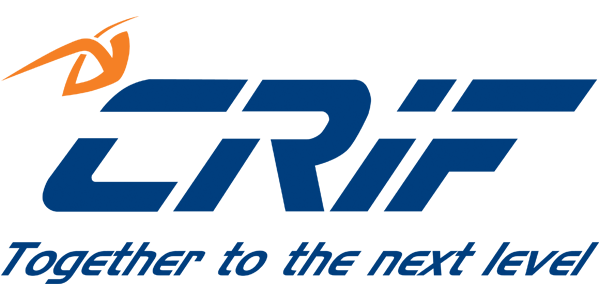
CRIF Announces Partnership with TechQuartier
Frankfurt (Germany) and Bologna (Italy), October 1, 2020 – CRIF – a global company specializing in credit and business information, outsourcing and processing services, and credit solutions, included in the prestigious IDC Top 100 FinTech Rankings, and registered as an AISP in 31 European countries where PSD2 is applicable – has entered into a partnership with TechQuartier, the premier Fintech hub in Frankfurt. TechQuartier brings together an innovation platform of startups, corporations, emerging talent, academics, policymakers, and experts in a vibrant ecosystem of more than 300 members.
As a TechQuartier Ecosystem Partner, CRIF participates in accelerator & elevator programs through its Global innovation hub “InnovEcoS” (Innovation and Ecosystem) and is able to position its digital offering and data-driven business as a FinTech company.
This is a continuation of CRIF’s strategy to connect globally with FinTechs and develop win-win collaborations. In detail, InnovEcoS fosters and accelerates innovation by businesses, financial institutions and insurance companies through boosting ecosystems.
CRIF will have access to TechQuartier’s community, as well as its university & partner network. Through this partnership, in a similar fashion to its links with other FinTech hubs around the world, CRIF aims to create and implement a powerful customer-oriented ecosystem based on collaboration. This was the stimulus behind the creation of the InnovEcoS Global Unit and drives CRIF to continuously innovate and develop new added-value services to be integrated in the CRIF Digital Next platform, enabling banks, insurance companies and FinTechs to seize the opportunities generated by Open Business.
“We are very pleased about the partnership signed with TechQuartier and enthusiastic about being part of its dynamic ecosystem,” said Natalia Shchelovanova – Global Innovation and Ecosystem Lead at CRIF. “Through its InnovEcoS hub, CRIF is eager to get in contact with FinTechs, businesses, SMEs, startups, InsurTechs, and RegTech companies. We are guided by the goal of constant innovation through expanding our market offering and providing our partners with the best tools to make our customers’ lives easier.”
“In the digital economy, consumers and SMEs are becoming increasingly demanding and require an intuitive and fast customer experience. For this reason, InnovEcoS plays an essential role in supporting the development of global organizations, helping them to map out their future paths. Ecosystems like TechQuartier are therefore strategic partners, so we are very pleased to be working with them,” said Carlo Gherardi, CEO of CRIF.
“TechQuartier is excited to begin this partnership with CRIF, a global FinTech leader. We believe that together we can expand opportunities in our community to support data-driven business models and build strong digitalization collaboration internationally,” said Miriam Unser, Head of Sales and Business Development at TechQuartier.
“As TechQuartier grows in the areas Big Data and AI, we need to build partnerships to support European collaboration. With CRIF, possibilities and opportunites are greater for our community members and for future projects globally,” said Dr. Sebastian Schäfer, Managing Director at TechQuartier.
About CRIF
CRIF is a global company specializing in credit bureau and business information, outsourcing and processing services, and credit solutions. Established in 1988 in Bologna (Italy), CRIF operates over four continents. CRIF is currently the leader in continental Europe in the field of banking credit information and one of the main operators on a global level in the field of integrated services for business & commercial information and credit & marketing management. CRIF is included in the prestigious IDC FinTech Rankings Top 100, a ranking of the leading global technology solution providers to the financial services industry, and in 2019 completed its coverage as an AISP in 31 European countries where the revised Payment Services Directive is applicable.
Today over 6,300 banks and financial institutions and 55,000 business clients use CRIF services in 50 countries on a daily basis. For more information: www.crif.com
TQ members win FinTech Germany Award 2020
TQ members win FinTech Germany Award 2020 in categories AI, Blockchain and Early-Stage
Read an exclusive interview with AI winner Tobias Schweiger, co-founder of HAWK:AI
On September 17, 2020, the 6th edition of the FinTech Germany Award was presented at the Tatcraft New Hardware Studios in Frankfurt. The award, initiated by the financial center Frankfurt represented by the FTGA (Frankfurt Main Finance, TechFluence and the WM Gruppe/Börsen-Zeitung), honors outstanding FinTech companies in various categories, from Seed-Stage until Growth-Stage and beyond to Foreign New Entrant to Germany, InsurTech, Blockchain and finally Artificial Intelligence.
Over 200 companies have applied or have been nominated by the jury. After the first selection process, 43 companies have been chosen and invited to the final award ceremony.
Dr. Sebastian Schäfer, managing director at TechQuartier said, “We are proud to see many of our FinTech members being awarded at Germany’s most prestigious competition.“
In total eight startups from the TQ community have been selected into the shortlist and we are proud to announce that three members won a prize:
1. Place “Artificial Intelligence”: HAWK:AI
1. Place “Blockchain”: Cashlink
1. Place “Early Stage”: Myos
3. Place “Early Stage”: Arabesque S-Ray
“Winning the Fintech Germany Award means a lot to the entire HAWK:AI team. We are delighted to receive recognition of our work. It is also be great to see that the jury is recognizing the fight against financial crime as an important field for innovation, not just for financial institutions but for society as a whole.” – Tobias Schweiger, co-founder of HAWK:AI.
Read on to get to know the company better, their challenges and successes.
TQ: What is the story of HAWK:AI? When, why and from whom was it founded?
Hawk:Ai: Tobias Schweiger and Wolfgang Berner founded HAWK:AI in 2018. With previous experience in payments, fraud prevention and FinTech, the team wanted to apply its knowledge in the field of Anti-Money-Laundering.
HAWK:AI is a global software platform to monitor financial transactions in real-time, delivering effective Anti-Money-Laundering (AML) compliance to financial institutions. To identify suspicious behavior, HAWK:AI utilizes a combination of traditional rules as well as Machine Learning/Artificial Intelligence, to deliver an efficient and fully explained process.
Algorithms can digest transactional data from multiple financial institutions, to identify and alert to fraudulent behavior more precisely and earlier than otherwise possible. We enable financial institutions to beat the network of well-organized and connected criminals, by building a monitoring network of our own.
TQ: What are HAWK:AI’s current challenges?
Hawk:AI: With an increasing number of international customers, we enjoy the daily challenge of scaling our business. However, the continuation of this growth and successfully establishing the solution also with large, multi-national banks is the challenge we are facing in 2020.
Often purchasing processes result in long sales cycles which are not for everyone (but for us!). However, our reputation, established references, partnerships and industry consortia we are part of, all help us to climb up this ladder. We will keep climbing!
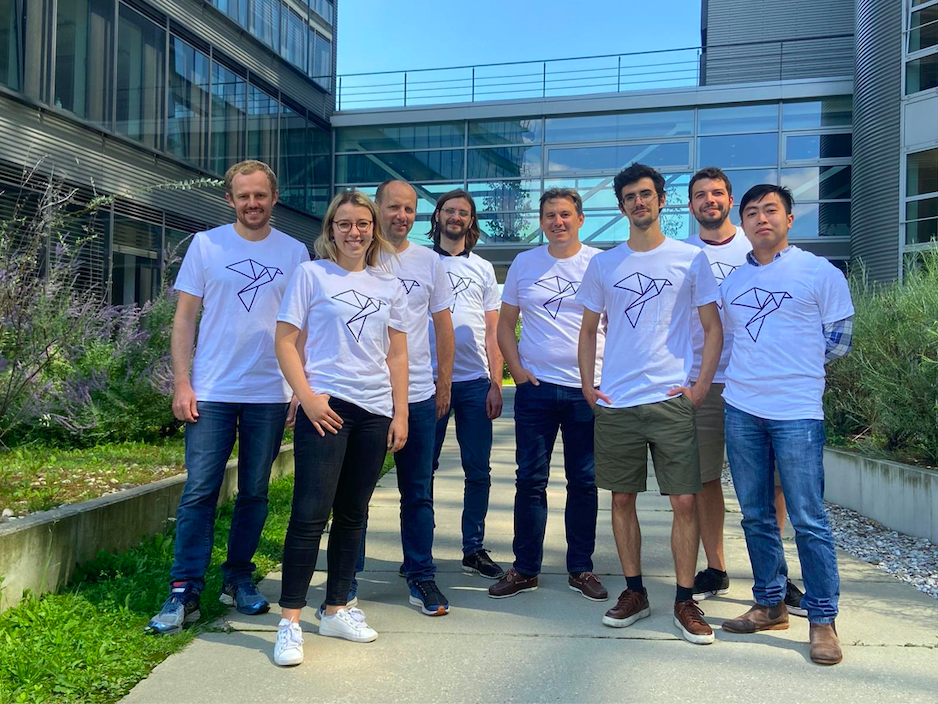
TQ: What was HAWK:AI’s biggest success?
Hawk:AI: To go live with our platform in 2019, and to continuously deliver confirmed value to our customers since then. After many months of developing our platform infrastructure, refining user interfaces and testing algorithms, experiencing the moment customers start using what you have built is priceless.
TQ: What are the company’s future goals?
Hawk:AI: We are aiming to continuously improve our platform, to increase the value customers derive from using it. Especially the extended use of algorithms to identify fraudulent behavior from transactional data across multiple banks will continue to be the firm’s sweet spot, and hence focus. Developments in multiple financial markets to support the exchange of information and to jointly monitor transactions are pointing to the only approach which really will improve the way we fight financial crime. We want to continue to be at the heart of these developments.
TQ: Where do you see HAWK:AI in 5 years and 10 years?
Hawk:AI: We do not believe it is a matter of reaching specific goals in 5 or 10 years. Rather, we believe we have started something that will make a difference to many financial institutions. Within years we assume to be the established platform player delivering process efficiency, AML compliance improvements and crime detection capabilities – all supercharged through insight generation overarching multiple institutions.
Thank you for the great interview. We wish you and all of TQ members the best of luck for the future!
investorXconnect brings leaders to think sustainable innovation at TechQuartier
investorXconnect brings leaders to think sustainable innovation at TechQuartier
The first edition of the event connected investors to early-stage sustainable FinTechs
Startups, elevator pitches, corporates, sustainable FinTechs, investors and networking. All of that describes the very successful pioneer edition of TechQuartier’s investorXconnect . This event is a new collaboration format, created to address social and environmental demands by connecting relevant stakeholders to push change with the help of technology.
Philipp Kaiser, managing director at Helaba and investor guest at the event said, “Sustainability is an important topic for us. Not only because regulators and the public are demanding respective steps but foremost because we are convinced that intrinsic compliance with ESG values will pay off in the midterm future for all of us, our employees, our clients, our shareholders, the public and hence for Helaba“.
investorXconnect aims to be a platform that helps to close the funding gap within the financial sector for startups that are ecological and social impact-oriented. With it, TQ wants to enable investment opportunities and offer a place for discussion and innovation.
Alexander Doudkin, co-founder and COO of Ecotrek joined another 11 seed and early-stage startups at the TQ’s event space to pitch their business ideas to 40 investors and guests.
“The FinTech startup ecosystem, as well as established financial service providers, can profit extremely from an innovative collaboration between all stakeholders. It was a great idea to attend investorXconnect to dive into the Frankfurt FinTech ecosystem and get useful feedback”, said Doudkin.
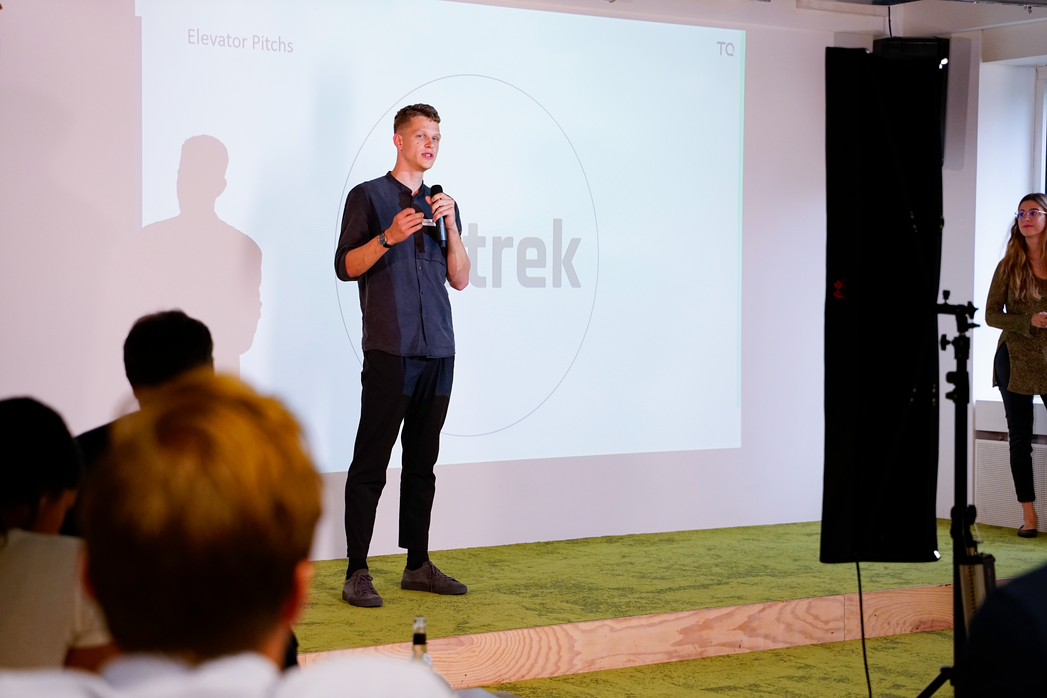
The event was divided into four parts: started with a keynote about the sustainable FinTech landscape and elevator pitches by participating startups. After that investors and startups had a chance to talk privately in a speed dating format. At the same time the „TechXperts Panel“ was held with corporate partners, selected experts and scaleup founders. And an informal networking session closed the evening at TQ’s Bembel Bar.
“The event had a great mixture of selected participants who were seriously interested in combining business metrics with ESG-values from all different parts of the financial industry. That made it very entertaining and educative too”, commented Philipp Kaiser.
Selma Peters, Innovation Products Manager at TechQuartier and organizer of the event mentioned, “The sustainable FinTech scene is rather small in Germany and is also not bundled in one place. The event made investors and corporates more aware of this industry and its solutions but also enabled us to help to grow the community of sustainable FinTech tighter and make each other aware of opportunities in their networks. At TQ, we can’t wait to see what great things will come out of this and future editions of investorXconnect.”
Disclaimer: TQ respected the max capacity of our space (Waldstadion 50 and Hammermann 35), as well as all hygiene rules under corona regulations. We also live-streamed the event as an option for guests to watch the event from their homes.
The most innovative alternatives to conventional meat production
The most innovative alternatives to conventional meat production
Für die Deutsche Version bitte einmal runter scollen
Most of us are aware of the many ways we need to decrease our impact on the planet – fly less often, spend less time in the car, stop using plastic and watch our electricity consumption.
But what about what we are eating? How do our stomachs affect climate change?
Eat less meat
Approximately 13.3 kilos of CO2 are released per kilo of beef. In order to achieve greenhouse gas neutrality in Germany, there is a 1-ton target. This goal means that only one ton of CO2 per person per year may be emitted. On one day this makes about 2.8 kilo CO2.
Back to beef – it is obviously essential to rethink our meat consumption. Alternative protein sources must be found, work must be done on substitute products and new ways of meat production must be researched in order to reduce CO2 emissions.
For this reason, scientists and young entrepreneurs work on interesting and innovative ideas every day. Here are a few possibilities:
Lab-grown meat
Scientists have found out that muscle fibers and thus meat can be cultivated using stem cells from animals. Meat from a petri dish.
The idea behind it?
We can satisfy the current extremely high demand for meat and at the same time put an end to factory farming. In addition, only meat products that are needed are produced. For this reason, slaughter waste such as hair and bones are completely eliminated. Finally, no other substances such as antibiotics are added during meat production.
Everything sound quite good right?
Unfortunately, lab grown meat production is not yet suitable for mass production. Too high costs prevent companies from mass production. More and more big players in the food industry recognize the seriousness of the situation and see the trend towards “cellular agriculture.” The aim is that meat from the petri dish will soon be cheaper than our old familiar meat from the refrigerator shelf.
Vegetable-based meat
The shelves in supermarkets are increasingly filled with alternative meat substitutes and the demand is high. As a result, more and more well-known brands in the food industry are following the trend and are focusing among others on soy, peas, black beans, chickpeas and seitan. Soy in particular can absorb marinades and spice mixtures very well, which makes it an excellent product for meat-like consumer goods such as vegan schnitzels, vegan nuggets and chili sin carne.
Insect meat
Eating habits in many countries around the world are already showing us the way. Insects can become a standard snack and an even better nutrition source of meat. And not without reason!
Insect meat contains about 60% protein, is full of vitamin B12 and contains more calcium than milk. Furthermore, more iron is found in insect meat than in spinach.
Not only good for you, but also for the environment, insect meat is better than for example beef. Mealworms produce only a tenth of the emissions and take up much less space than conventional meat production.
At the Growth Alliance – AgTech/FoodTech Accelerator 2019, the founders of a participating start-up presented their idea of insect meal.
The four founders of Cepri say:
“The world food supply requires innovative solutions due to the constantly growing world population. Insects can make a decisive contribution to the sustainable nutrition of the world’s population.”
Meat from the 3D printer
Founders from Tel Aviv, Israel are spending many hours working on a 3D printer that is producing vegan meat. With the three components “muscles”, “fat” and “blood” the textures are simulated like a real piece of meat. Ben-Shitrit, founder of Redefine Meat, stresses that the composition of the meat substitute has been adapted to the cow’s diet. Soybeans and pea proteins are used as protein supplements. Flavorings give a feeling of juiciness and the certain shading is produced by coloring agents. However, experts also say that this meat substitute contains fewer nutrients than its equivalent.
Finally, to reiterate, a change in meat production is incredibly important for the reduction of CO2 emissions. This is why so many startups are currently working on developing meat alternatives and discovering new production methods.
Are you also part of a start-up company that is active in the agricultural or food industry?
Apply now for our free Growth Alliance – AgTech/FoodTech Accelerator and listen to exciting speakers and present your idea to investors. At the end of the three-day program you can win prize money to further promote your start-up.
More information and the application form can be found here: https://techquartier.com/acceleration-programs/growth-alliance-the-agtech-and-foodtech-accelerator-2020/
Deutsche Version:
Die innovativsten Alternativen zur herkömmlichen Fleischproduktion
Um positiv zu dem Klimaschutz beizutragen, können wir uns in viele verschiedene Themen einarbeiten. Themenfelder wie Flugverkehr, Autonutzung, Plastik- und Stromverbrauch sind für viele im Alltag allgegenwertig.
Was ist mit unserer Essgewohnheit? Beeinflussen wir den Klimawandel mit unseren Mägen?
In den letzten Jahren rückte das Thema Ernährung immer mehr in den Vordergrund. Pro Kilo Rindfleisch werden ca. 13,3 Kilo CO2 freigesetzt. Um eine Treibhausgasneutralität in Deutschland herzustellen gibt es ein 1-Tonnen-Ziel. Dieses Ziel bedeutet, dass nur eine Tonne CO2 pro Person im Jahr ausgestoßen werden darf. An einem Tag macht das ca. 2,8 Kilo CO2.
Zurück zum Rindfleisch – hier kann gesehen werden wie essentiell wichtig es ist auch in dem Bereich Ernährung/Fleischkonsum umzudenken. Es müssen alternative Proteinquellen gefunden werden, an Ersatzprodukten gearbeitet werden und neue Wege der Fleischproduktion erforscht werden, damit der CO2 Ausstoß reduziert wird.
Aus diesem Grund arbeiten Wissenschaftler und junge Unternehmer tagtäglich an interessanten und innovativen Ideen. Hier seht ihr ein paar Möglichkeiten:
In-Vitro-Fleisch:
Wissenschaftler haben herausgefunden, dass durch Stammzellen von Tieren Muskelfasern und dadurch wiederum Fleisch gezüchtet werden kann. Sozusagen Fleisch aus der Petrischale.
Die Idee dahinter?
Man kann die derzeitige extrem hohe Nachfrage nach Fleisch stillen und gleichzeitig der Massentierhaltung ein Ende setzen. Zudem werden nur Fleischprodukte erstellt die gebraucht werden. Aus diesem Grund fallen Schlachtabfälle wie Haare und Knochen komplett weg. Schließlich werden bei der Fleischproduktion keine weiteren Substanzen wie Antibiotika hinzugefügt.
Hört sich alles ganz gut an?
Leider ist die In-Vitro-Fleischproduktion noch nicht Massentauglich. Zu hohe Kosten hindern die Unternehmen das Fleisch in der Industrie herzustellen. Mehr und mehr Big Player aus der Ernährungsindustrie erkennen die Ernsthaftigkeit der Lage und sehen den Trend zu der „zellularen Landwirtschaft“. Ziel ist es, dass das Fleisch aus der Petrischale bald günstiger ist als unser altbekanntes Fleisch aus dem Kühlregal.
Fleisch auf pflanzlicher Basis:
Die Regale in den Supermärkten füllen sich immer mehr mit alternativen Fleischersatzprodukten und die Nachfrage ist groß. Somit folgen immer mehr bekannte Marken der Lebensmittelindustrie dem Trend und setzen unter anderem auf Soja, Erbsen, schwarze Bohnen, Kichererbsen und Seitan. Besonders Soja kann Marinaden und Gewürzmischungen sehr gut aufnehmen, weshalb es sich als hervorragendes Produkt für Fleischähnliche Konsumgüter wie vegane Schnitzel, vegane Nuggets und Chili sin Carne eignet.
Insektenfleisch:
Essgewohnheiten in vielen Ländern auf der Welt machen es uns bereits vor. Insekten können zu einem StandardSnack und noch besseren Fleischquelle werden. Das nicht ohne Grund!
Insektenfleisch enthält ca. 60% Protein, ist voll mit Vitamin B12 und beinhaltet mehr Calcium als Milch. Darüber hinaus wird mehr Eisen im Insektenfleisch als im Spinat nachgewiesen.
Nicht nur für dich, sondern auch für die Umwelt ist Insektenfleisch besser als zum Beispiel Rindfleisch. Mehlwürmer produzieren nur ein Zehntel der Emissionen und brauchen viel weniger Platz als herkömmliche Fleischproduktion.
Bei dem Growth Alliance – AgTech/FoodTech Accelerator 2019 haben die Gründer eines teilnehmenden Startups ihre Idee von Insektenmehl vorgestellt.
Die vier Gründer von Cepri sagen:
„Die Welternährung verlangt aufgrund der stetig steigenden Weltbevölkerung nach innovativen Lösungsansätzen.Insekten können einen entscheidenden Beitrag zu einer nachhaltigen Ernährung der Weltbevölkerung beitragen.“
Fleisch aus dem 3D Drucker:
Gründer aus Tel Aviv, Israel arbeiten in ihrem Startup viele Stunden an einem 3D Drucker, der veganes Fleisch produziert. Mit den drei Komponenten „Muskeln“, „Fett“ und „Blut“ werden die Texturen wie bei einem echten Stück Fleisch simuliert. Ben-Shitrit, Gründer von Redefine Meat, betont, dass die Zusammensetzung des Fleischersatzes an der Ernährung der Kuh angepasst wurde. Als Proteinzufuhr werden Sojabohnen und Erbsenproteine eingesetzt. Aromastoffe vermitteln das Gefühl von Saftigkeit und die gewisse Schattierung wird von Färbemittel erzeugt. Experten sagen aber auch, dass dieser Fleischersatz weniger Nährstoffe beinhaltet als sein Äquivalent.
Schlussendlich ist zu wiederholen, dass eine Umstellung in der Fleischproduktion unglaublich wichtig ist für die Einsparung von CO2 Emissionen. Aus diesem Grund arbeiten so viele Startups gerade daran Fleischalternativen zu entwickeln und neue Produktionswege zu entdecken.
Seid ihr auch Teil eines Startups welches in der Landwirtschafts- oder Ernährungsbranche tätig ist?
Bewerbt euch jetzt bei unserem kostenlosen Growth Alliance – AgTech/FoodTech Accelerator und hört spannenden Speakern zu und präsentiert eure Idee Investoren. Am Ende des dreitägigen Programmes könnt ihr ein Preisgeld gewinnen mit dem ihr euer Startup weiter pushen könnt.
Zu mehr Informationen und zum Bewerbungsformular gelangt ihr hier: https://techquartier.com/acceleration-programs/growth-alliance-the-agtech-and-foodtech-accelerator-2020/
Zeit für einen Rückblick! Was sagen die Gewinner des Growth Alliance - AgTech / FoodTech Accelerator 2018 und 2019?
Zeit für einen Rückblick! Was sagen die Gewinner des Growth Alliance - AgTech / FoodTech Accelerator 2018 und 2019?
Vom 28. bis 30. September 2020 richtet das Frankfurter TechQuartier zusammen mit der Landwirtschaftliche Rentenbank den dritten Accelerator seiner Art für Startups aus. Es werden deutsche Startups für das kostenlose Programm angesprochen, die innovative Produkte, Verfahren oder Systeme mit Mehrwert für die Agrar- und Ernährungswirtschaft entwickeln.
Was sagt ein Gewinner des Growth Alliance – AgTech/FoodTech Accelerator über das Programm?
Wir haben gleich zwei gefragt, um exklusive Insights zu bekommen wie das Programm für sie war und vor allem eine wichtige Frage zu klären – was sie mit dem Preisgeld gemacht haben.
Dominik Ewald (Mitgründer) hat mit seinem Team in 2018 den Accelerator gewonnen. Mit dem Startup Monitorfish, gegründet 2018, unterstützen sie lokale Fischzüchter dabei die höchste Quantität und Qualität bei der Fischzucht zu erreichen. Mit Hilfe von AI konzentrieren sie sich auf die Reduzierung der Fischsterblichkeit in Teichen. Das Berliner Startup konnte mittlerweile seine Technik zertifiziert auf den Markt bringen.
Im Jahr 2019 gewann Otmar Trenk (Gründer) mit seinem Team den Growth Alliance – AgTech/FoodTech Accelerator. Durch ein webbasiertes Netzwerk werden Imkern, Landwirten und Bienenfreunden die Möglichkeit gegeben sich zu vernetzen, um Dienstleistungen, Produkte und Wissen rund um die Bienen miteinander auszutauschen. Das in Hamburg ansässige Unternehmen möchte mit einer neu gedachten Lösung die Bestäubungsplanung und -umsetzung verbessern sowie vereinfachen.
Warum sollte man sich für den Growth Alliance – AgTech/FoodTech Accelerator bewerben?
Dominik (Mitgründer, Monitorfish): Der Weg sich von einem Startup zu einem etablierten Unternehmen zu entwickelnist im AgTech/ FoodTech Bereich gefühlt doppelt so lang. Die Ernährung und Landwirtschaftsbranche ist eine unglaubliche vielfältige Industrie mit vielen Stolpersteinen. Der Growth Alliance – AgTech/FoodTech Accelerator bringt gleichgesinnte Startups zusammen und führt sie an ihre Problemfelder heran. Vor allem der Austausch mit etablierten Profis und Fachnerds hat einen unglaublichen Mehrwert und ist somit einzigartig in Deutschland.
Otmar (Gründer, BEEsharing): Der Growth Alliance – AgTech/FoodTech Accelerator hat uns eine einzigartige Plattform zum Austausch auf Augenhöhe geboten. Von anderen Startups über Vertreter wichtiger Organisationen wie z.B. der deutsche Bauernverband bis hin zur Ministerin für Landwirtschaft und Ernährung. Mit allen TeilnehmerInnen konnte man sich in produktiver und gleichsam lockerer Atmosphäre austauschen und einander kennenlernen.
Für was habt ihr das Preisgeld genutzt?
Dominik (Mitgründer, Monitorfish): Wie alle unsere Preisgelder ging dies 1 zu 1 in die Entwicklung des Produktes. Ein Teil des Geldes ist in unsere erste MVP Stereo Kamera gegangen sowie in Messe Auftritte und Besuche beiPilotkunden. Das schöne ist, am Anfang sind 5.000€ gefühlt wie 500.000€.
Otmar (Gründer, BEEsharing): Ausstellung als Growth-Startup auf der WebSummit 2019 in Lissabon.
Welchen Tipp würdet ihr zukünftigen Teilnehmern mit in das Programm geben?
Dominik (Mitgründer, Monitorfish): Seid offen für Neues, aber auch ruhig mal in die Diskussion gehen. Bringt euch ein, fordert den Coaches alles ab und feiert auch mal zusammen. Das war nämlich auch schön gewesen, es wurde im Programm auch Raum gelassen gemeinsam Erfolge zu feiern! Allein ausgewählt worden zu sein, war schon ein riesen Erfolg!
Otmar (Gründer, BEEsharing): Nutzt die Chance zum Austausch mit anderen GründerInnen und Akteuren der Ernährungs- & Landwirtschaft so intensiv wie möglich. Wir haben bisher noch kein Event kennenlernen dürfen, dass im Rahmen eines ähnlichen Formats angeboten wird und derart spannende und hilfreiche Kontakte bietet. Wir profitieren noch heute von dem Event und den wertvollen Gesprächen.
Bei der diesjährigen Version wird der Growth Alliance – AgTech/FoodTech Accelerator erstmalig durch Webinare im Vorfeld unterstützt. Durch die Weiterentwicklung des Programmes wird eine bessere Vorbereitung der Startups gewährleistet, um somit den allgemeinen Ablauf zu vereinfachen. Darüber hinaus sind viele interessante und innovative Speaker geplant, die mit ihrem wissenswerten Input das Event füllen.
Hast du auch Lust beim nächsten Growth Alliance – AgTech/FoodTech Accelerator in Kooperation mit der Rentenbank dabei zu sein? Möchtest du mit deinem Startup der Gewinner 2020 sein?
Bewerbe dich und dein Startup jetzt unter folgendem Link: https://techquartier.typeform.com/to/QbyVjN
Oder informiere dich mehr über das Programm:
Coworking in Frankfurt: Deutsche Börse FinTech Hub

Coworking in Frankfurt: Deutsche Börse FinTech Hub
Der Deutsche Börse FinTech Hub ist wie man im amerikanischen Sprachgebrauch so gerne sagt: The place to be!
Auf den 450 Quadratmetern des Hubs werden Besprechungsräume und Arbeitsplätze für eine längere Periode sowie stundenweise angeboten. Durch einen entsprechenden Co-Working Space arbeitet man im Herzen von Frankfurt und hat jederzeit die Möglichkeit mit einem Teammitglied des Deutsche Börse Venture Network in persönlichen Kontakt zu treten. Vor Ort kann man immer wieder nach Tipps für zum Beispiel Investoren-Meetings oder die richtige Salesstrategie fragen. Für Stefan Kolb von Goio Data ist besonders die gute Infrastruktur und die einfache Vernetzung zu Nachbarn sowie zum TechQuartier ein wichtiger Entscheidungspunkt für den Deutsche Börse FinTech Hub gewesen. Er ergänzt: „Ich kann mir aktuell keinen besseren Ort für ein FinTech Startup in Deutschland vorstellen!“.
Der Deutsche Börse FinTech Hub wird ebenfalls vom Deutsche Börse Venture Network genutzt, welches Startup-Unternehmen im vorbörslichen Bereich u.a. beim Zugang zu Wachstumskapital unterstützt.
Beide Initiativen der Deutschen Börse tragen damit einen wesentlichen Teil zum Wachstumsökosystem der Startup Szene in Frankfurt und darüber hinaus bei.
Mit seinem speziell entwickelten und auf die Mitglieder abgestimmten Angebot möchte das Deutsche Börse Venture Network einen spürbaren Unterschied für die Finanzierungssituation von jungen, aufstrebenden Unternehmen in Deutschland erreichen – für Gründer und Investoren. Die Deutsche Börse richtet damit ihre Expertise auf einen vorbörslichen Bereich, um auch hier Unternehmen den Zugang zu Kapital zu erleichtern und Innovationen zu unterstützen, die das Wachstum in Deutschland und Europa langfristig prägen können.
2015 ging das Deutsche Börse Venture Network an den Start. Seitdem ist das Netzwerk mit über 600 Mitgliedern aus ganz Europa auf Expansionskurs und hat u.a. sieben Börsengange von Wachstumsunternehmen an der Frankfurter Wertpapierbörse hervorgebracht. Ein maßgeschneidertes Serviceangebot unterstützt die Mitglieder optimal während den unterschiedlichen Unternehmensphasen.
Durch die Zusammenarbeit zwischen dem TechQuartier und dem Deutsche Börse FinTech Hub entstehen für die Mitglieder zusätzlich spannende Möglichkeiten. Sie sind dadurch Teil der TechQuartier Community und können die Räumlichkeiten der Deutschen Börse nutzen wie z.B. die Co-Working Spaces und die Besprechungsräume. Zudem werden Sie zu Veranstaltungen und Pitch Möglichkeiten eingeladen, die vom TechQuartier organisiert werden.
Wir haben Cashlink, Mitglied und Mieter von Co-Working Spaces im Deutsche Börse FinTech Hub, um ein kleines Interview gebeten, wie es Ihnen im FinTech Hub gefällt. Cashlink hat sich zum Ziel gesetzt übertragbare Unternehmensbeteiligungsrechte zu digitalisieren. Dies realisieren sie durch einen rechtlichen und technischen Rahmen auf Basis der Blockchain-Technologie.
Was gefällt dir am meisten am Deutsche Börse FinTech Hub?
Am allerbesten ist natürlich die Community. Das FinTech Hub beherbergt neben einigen Startups auch das Deutsche Börse Venture Network der Deutschen Börse. Mit der Zeit haben wir eine tiefe Verbundenheit zum Netzwerk entwickelt und agieren inzwischen auch als offizieller Kooperationspartner des Deutsche Börse Venture Networks. So begegnen wir der Community des Netzwerkes und den unterschiedlichen Startups im Hub und tauschen uns über verschiedenste Themen aus. Dabei gewinnen wir auch zahlreiche neue Inspirationen. Das Deutsche Börse Venture Network unterstützt diesen Austausch sehr aktiv, indem es immer wieder spannende Formate im FinTech Hub anbietet. Wir sind mit unserem Team bereits seit 2017 im FinTech Hub und es ist ein Stück weit wie ein zuhause für uns als Team geworden. Hierzu zählt auch das gemeinsame Mittagessen, das wir im Sommer gerne auf die Dachterasse des Hubs auslagern.
Wie würdest du das Deutsche Börse FinTech Hub mit drei Worten beschreiben?
Lichtdurchflutet, belebt und spaßig – Teammitglieder und Interessierte sind immer wieder von unseren Räumen begeistert, denn durch die zahlreichen großen Fenster arbeiten wir nicht nur in lichtdurchfluteten Räumen, sondern haben auch noch einen spektakulären Blick auf Frankfurts Skyline. Belebt ist der Hub, weil das Deutsche Börse Venture Network aktiv die Community im Hub fördert und weil so viele unterschiedliche Menschen Tag für Tag in den Hub kommen, sich austauschen und gemeinsam wachsen. Und natürlich fehlt auch der obligatorische Kicker nicht, an dem wir gerne das Team des Deutsche Börse Venture Network herausfordern.
Würdest du das Deutsche Börse FinTech Hub weiterempfehlen und wenn ja warum?
Das Deutsche Börse FinTech Hub würde ich in jedem Fall weiterempfehlen. Wer auf der Suche nach einem schönen Ort ist, um sich und sein Geschäft zu entwickeln, trifft hier auf eine bunte Community und eine hervorragende Infrastruktur, auf die das Deutsche Börse Venture Network großen Wert legt.
Schaut hier mal rein für mehr Informationen zum Deutsche Börse FinTech Hub: https://www.venture-network.com/dbvn-de/fintech-hub
Und hier zum Deutsche Börse Venture Network:
https://www.venture-network.com/dbvn-en/about-us
Hier gibt es mehr Informationen zum TechQuartier:
Bei konkreten Fragen könnt ihr euch auch direkt bei Oliver Mahr, Deutsche Börse oder Dr. Sebastian Schäfer, TechQuartier melden.
Compliance Navigator: Helping global startups understand German regulation
Compliance Navigator: Helping global startups understand German regulation
The second edition of the Compliance Navigator hosted by Atos, PwC,equens Worldline and TechQuartier was held on June 17-18 virtually. Twelve TechQuartier members and startups were once again able to increase their knowledge in compliance, KYC and information security.
“It is a very complex topic and it is hard to know everything by heart on your own.” said Evgeny Matershev from Agora Innovation.
Startups, in different lifecycle phases of development, logged on to listen and interact with speakers such as:
– Veronica Alava, Business Development Manager at equensWorldline,
– Jean-Pierre Le Treut, Group Industry Solution Director at Atos and
– Janine Skinner, Chief Protection Officer at Atos North America.
To increase their knowledge, twelve startups from all over the globe including from Tel Aviv and Sydney participated.
The startups included:
- Tangany GmbH
- Audeamusrisk
- Salv
- Smart Forest
- finleap connect
- Finoa GmbH
- Fincite
- ONE by Agora Innovation
- AIO – Verified Financial Identity
- HAWK:AI
- pockid
- Helixid
The first workshop to kickoff the event was ‘Big Picture – Regulatory Landscape.’ Deutsche Bundesbank gave an overview of the financial institutions in Germany and Europe and gave insights about the regulatory landscape in these countries. One of the learnings was that digitalization brings risks and chances to banks, but we should see young FinTechs as an opportunity to solve these upcoming problems.
Other conference topics including ‘KYC clustered with Financial Crime & Fraud Prevention Workshop’ gave interesting insights to the startups. What is possible in this specific area? What should they think about while protecting the company and their users of financial crime?
“Most interesting detail was in the KYC clustered with Financial Crime & Fraud Prevention Workshop that people create a 3D image of a stolen identity and put this in front of the camera. I never imagined that people are so creative when it comes to framing someone. I never thought in that dimension. It was a very interesting insight.” said Matthias von Keudell from Fincite.
The last speaker of the event was Jennifer Skinner, Chief Protection Officer at Atos North America who spoke from the US about data privacy & data security. She pointed out how extremely important it is for companies to make data security an important topic for every employee.
“It has to be part of the corporate social responsibility for companies in order to move from data privacy to data ethics.”
The Compliance Navigator concluded with customized 1-on-1s with experts to talk in-depth about each startup’s regulation questions.
Leading the program were partners Marc Billeb, PwC, Sven Meyer, PwC, Olaf Badstübner, Global Director Financial Services at Atos, and Carsten Goebel, Business Development Manager at equensWorldline.

